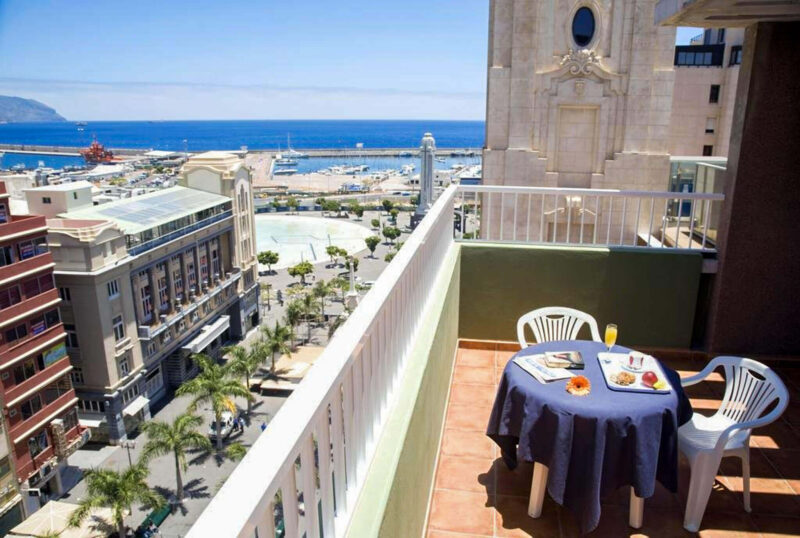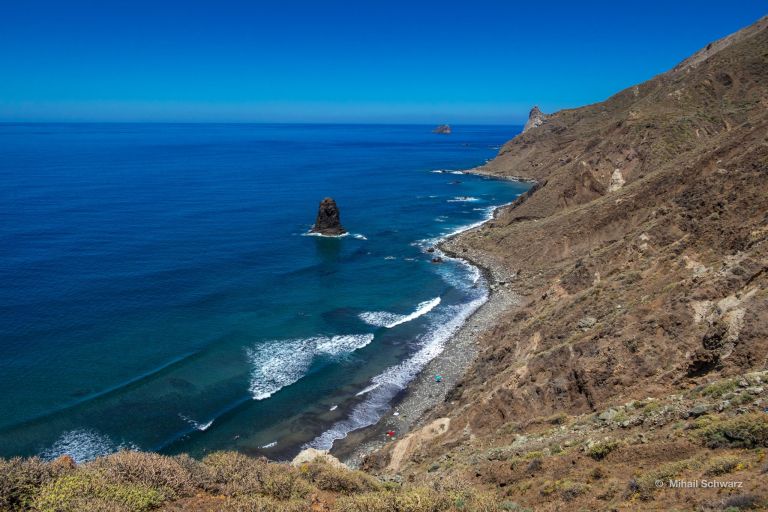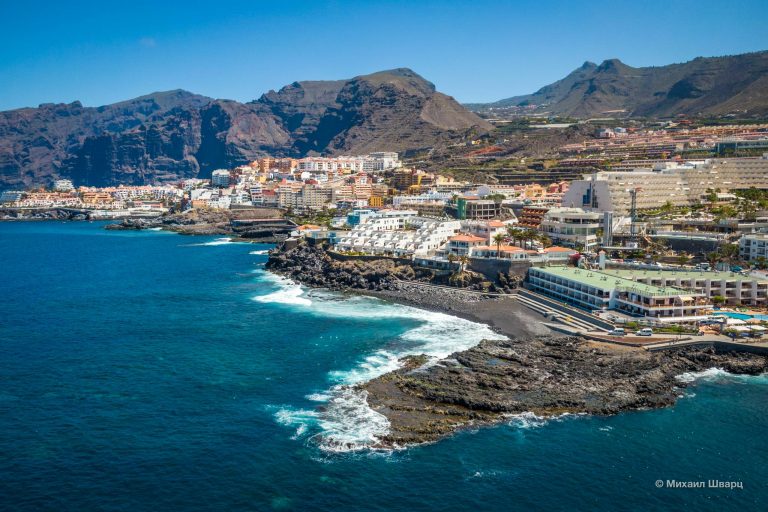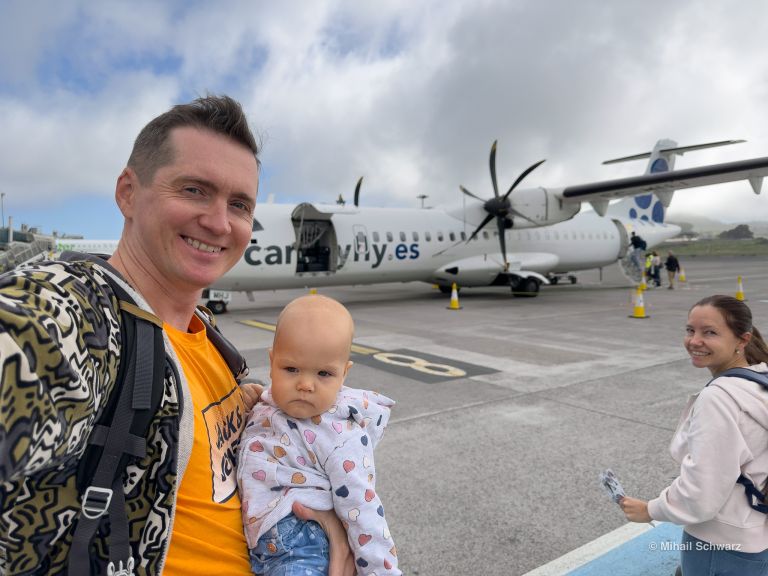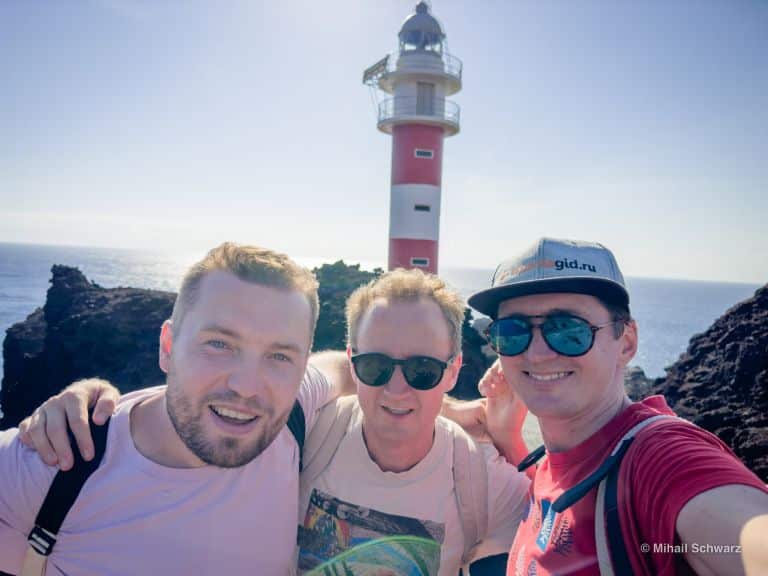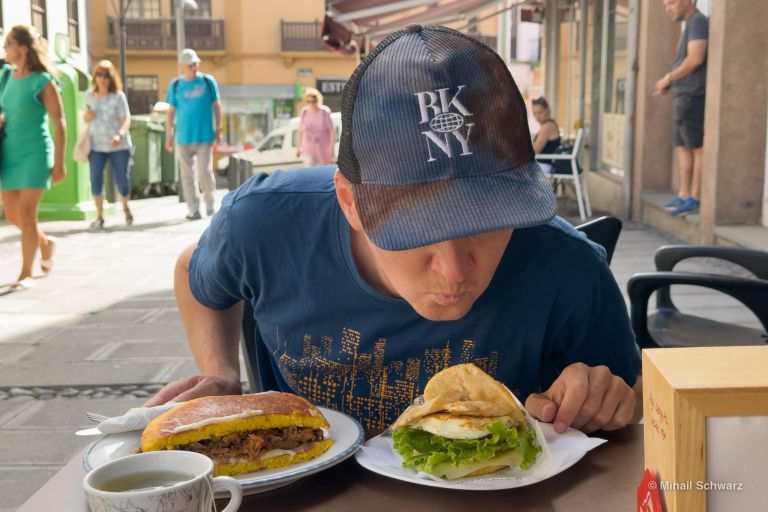The Carnival on Tenerife is a grandiose, vibrant costumed celebration. The Carnaval de Tenerife (or Carnaval de Santa Cruz de Tenerife) combines the exquisite style of Venice with Brazilian passion. It’s considered the largest in Europe and the second most significant in the world after the Rio Carnival. But is this really the case?
Tenerife Carnival Program 2025
The carnival celebrations in 2025 on Tenerife will take place from January 31 to March 9. The main theme of the new carnival is Secrets of Africa.

January 31: grand opening of the carnival.
February 7 – 8, 19:00: first and second stages of the children’s «Murgas» contest (Fases y final del Concurso de Murgas Infantiles). Murgas are street musical groups that criticize social and political events in the country through their songs. Venue: Exhibition Square (Recinto Ferial).
February 9, 17:00: Choreographic festival at the exhibition complex (Festival coreográfico en el Recinto Ferial) – a dance performance featuring various dance groups.
February 10 – 12, 20:30: first, second and third stages of the adult «Murgas» contest of the Santa Cruz Carnival (Fases del Concurso de Murgas del Carnaval de Santa Cruz) – a murgas contest where adult participants perform satirical songs on current topics. Venue: Exhibition Square (Recinto Ferial).
February 14, 20:30: Final of the adult «Murgas» contest (Final del Concurso de Murgas adultas) – the final stage of the competition between murgas, where the best performance is determined. Venue: Exhibition Square (Recinto Ferial).
February 15, 20:00: Musical groups contest at the exhibition complex (Concurso de agrupaciones musicales en el Recinto ferial) – a music competition where groups present their best works.
February 16, 18:00: Gala evening for the selection of the children’s carnival queen at the exhibition complex (Gala de Elección de la Reina Infantil en el Recinto Ferial) – a ceremonial event where the carnival queen is chosen among children.
February 19, 17:30: Gala evening for the selection of the carnival queen among elderly people (Gala de Elección de la Reina de los Mayores) at the exhibition complex (Recinto Ferial) – a special contest where elderly women compete for the title of queen.
February 21, 20:30: The «Funny Song» contest will be held at the Guimerá Theater (Canción de la Risa en el Teatro Guimerá). This is a unique musical performance filled with humor and fun.
February 22, 20:00: Comparsas Contest at the exhibition complex (Concurso de comparsas) — a competition of dance groups at the exhibition complex. Groups of dancers and musicians compete, demonstrating captivating choreographies full of rhythm and energy, accompanied by colorful and vibrant costumes.
February 23: Costume contest at the exhibition complex at 11:00 and Rondallas contest at the Tenerife Auditorium at 17:00 (Concurso de disfraces en el Recinto Ferial y Certamen Rondallas en el Auditorio de Tenerife). This is a celebration of creativity and talent in costume making and musical art.
February 25: Concert by the lyrical music group Los Fregolinos (Concierto de la Agrupación Lírico Musical Los Fregolinos) starts at 20:30 at the Guimerá Theater.
February 26, 21:30: Grand gala for the election of the Carnival Queen at the exhibition complex (Gran Gala de Elección de la Reina del Carnaval 2025 en el Recinto Ferial) — a magnificent event where the main queen of the carnival is chosen.
February 27, 20:30: Zarzuela concert, organized by the Círculo de Amistad XII de Enero society, at the Guimerá Theater (Concierto de La Zarzuela del Círculo de Amistad XII de Enero). Zarzuela is a Spanish musical-dramatic genre where vocal and dance performances are combined with dialogues.
🔥🔥 February 28, 19:30: Carnival-announcing cavalcade at the Dominican Republic Square (Cabalgata anunciadora del Carnaval 2025 en Plaza de la República Dominicana) — a grand procession opening the carnival, as well as a contest of decorated platforms and cars (Concurso de Carrozas y Coches Engalanados) on the Galceran Bridge (Puente Galceran).
March 1: Children’s carnival procession (Carnaval Infantil) at 17:30 on Antonio Domínguez Alfonso Street (La Noria), Rondallas Parade (Pasacalle de las Rondallas) at 18:00 on Plaza Weyler, Rhythm and Harmony Contest (Certamen de Ritmo y Armonía) at 21:00 on Avenida Francisco la Roche — an exciting performance featuring the best dance and music groups.
March 2: Performance by the lyrical music group Los Fregolinos (Actuación de la Agrupación Lírico Musical Los Fregolinos) at 12:00 on Plaza del Príncipe.
Performance by the philharmonic orchestra Ni fú — Ni fá (Actuación de la Afilarmónica Ni fú — Ni fá) at 11:00 on Plaza del Príncipe.
March 3: Gala Dragnaval (selection of the queen among LGBTQ community representatives) at 21:00 on Plaza de La Candelaria.
March 4: Performance by the lyrical music group Los Fregolinos (Actuación de la Agrupación Lírico Musical Los Fregolinos) at 12:00 on Plaza del Príncipe.
Performance by the philharmonic orchestra Ni fú — Ni fá (Actuación de la Afilarmónica Ni fú — Ni fá) at 11:00 on Plaza del Príncipe.
🔥🔥🔥 «Coso» Carnival Apotheosis («Coso» Apoteosis del Carnaval) from 16:00 to 00:00 on Avenida Francisco la Roche. A grand parade that is the culmination of the carnival.
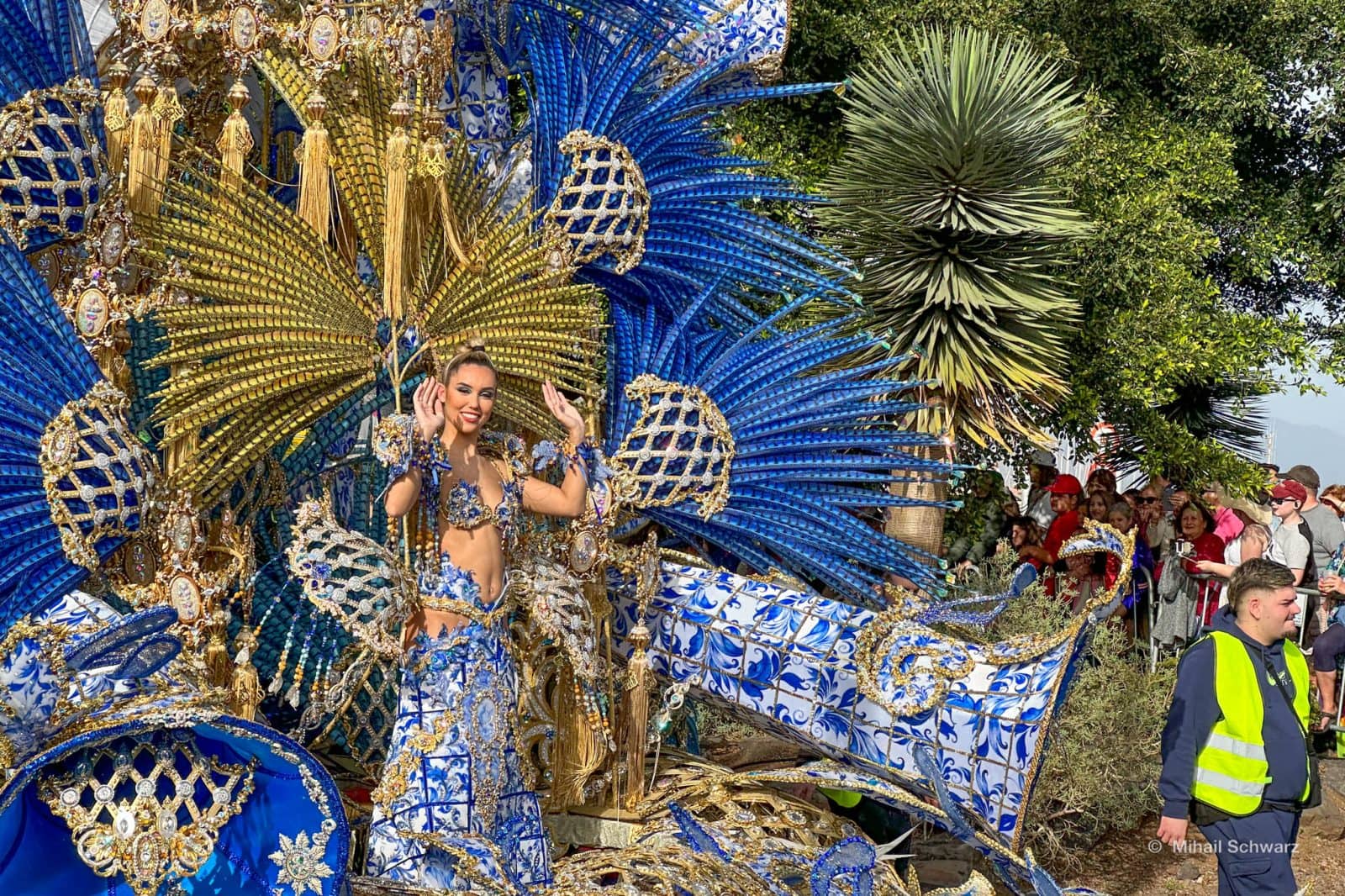
🔥 March 5: at 21:00 the Burial of the Sardine (Entierro de la Sardina) will take place, starting on Juan Pablo II street. This is a fun satirical event. A figure of a sardine, symbolizing the spirit of carnival, is paraded through the streets and then ceremoniously burned on a bonfire. Everyone cries. This ritual marks the official end of the Santa Cruz de Tenerife Carnival.
From 23:30 to 03:00 Dancing supported by orchestras (Baile con actuaciones de grandes orquestas) at Plaza del Príncipe.
March 6: at 11:00 Rondallas Festival at the Guimerá Theater (Festival de Rondallas en el Teatro Guimerá) — a musical event where choirs perform traditional songs.
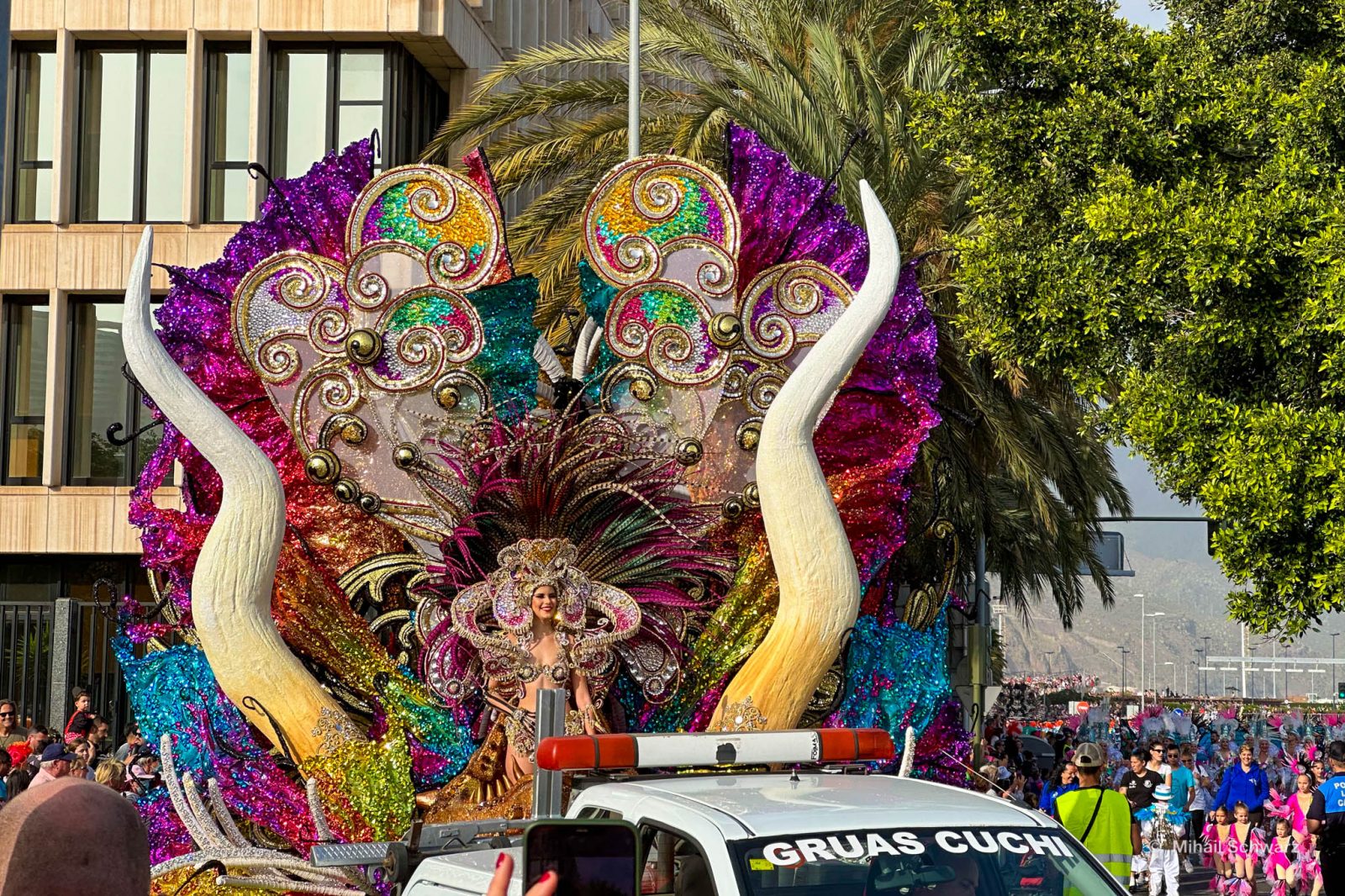
🔥 🔥 March 7: at 18:00 from García Sanabria park {
The Adonis Capital ⭐️⭐️ hotel is located in the city center. It has a homey atmosphere.
Which days are best to go to the Carnival?
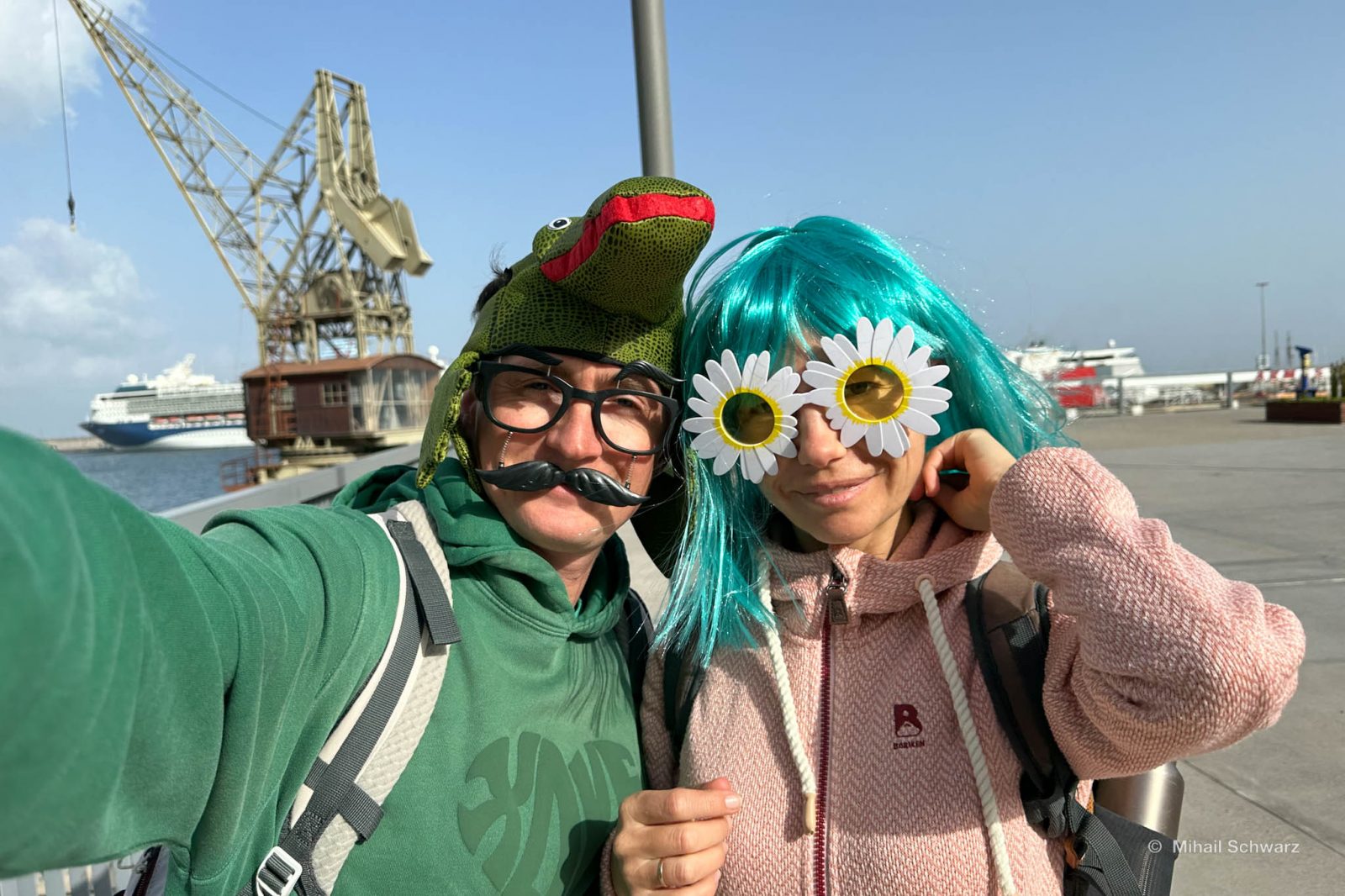
If you want to see the carnival, come on February 28 (Cabalgata). There will be fewer people on Tuesday, March 4 (Nifú-Nifá-Fregolinos). It’s also interesting to participate in the Burial of the Sardine (Entierro de la Sardina) on March 5. To drink and party, come on the last Saturday or Sunday.
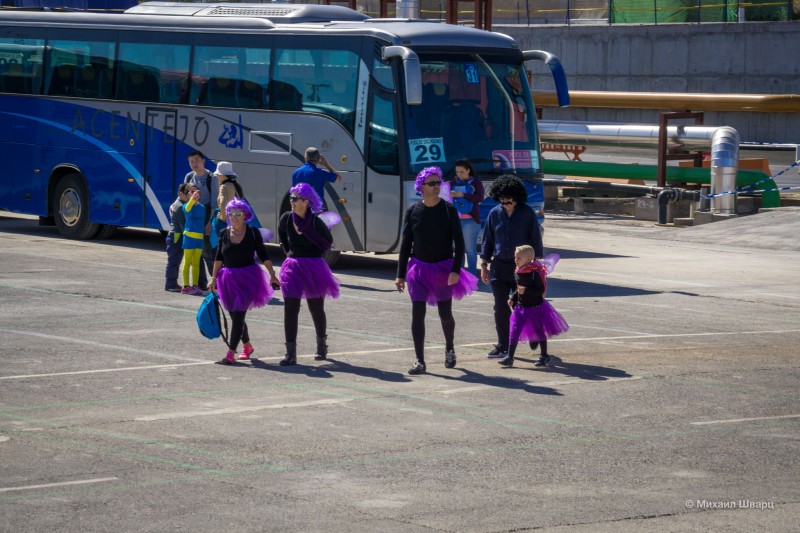
The large-scale celebration encompasses all the cities on the island: La Laguna, Orotava, Arona, Candelaria, Puerto de la Cruz and others. The main events take place in the island’s capital — Santa Cruz (in Plaza de España). This is exactly where we headed.
We didn’t really want to drive, and we might not have been able to fit on the bus for the return trip, so we bought a transfer from a local travel agency for €22 to take us there and back without any hassle. By 2 pm, everyone was already taking the best spots to watch.

Each municipality develops its own program of events. As the guidebooks claim — visitors to the Canary archipelago can see all the diversity of traditions — from the unbridled capital festivities to the cozy atmosphere of provincial celebrations. Well, let’s see.
For the carnival, they drained the central square of the city. Not long ago, there was a lake here.
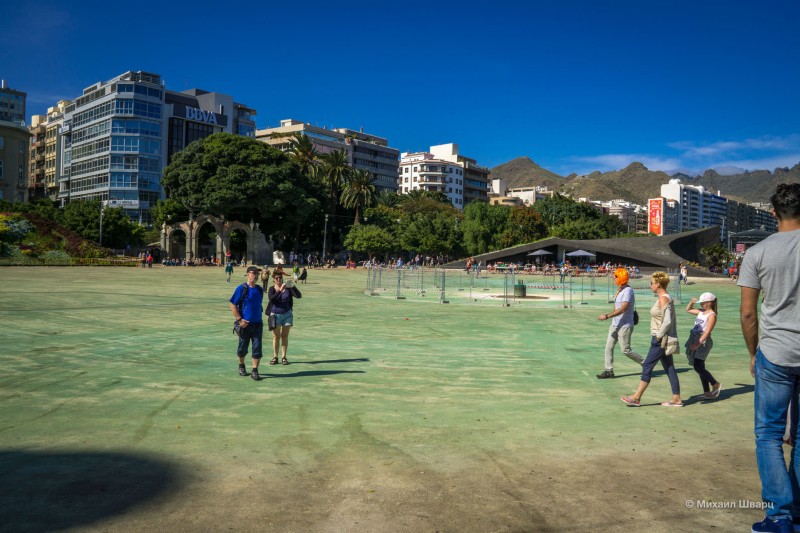
Some people take higher positions to be at the level of the carnival queens.
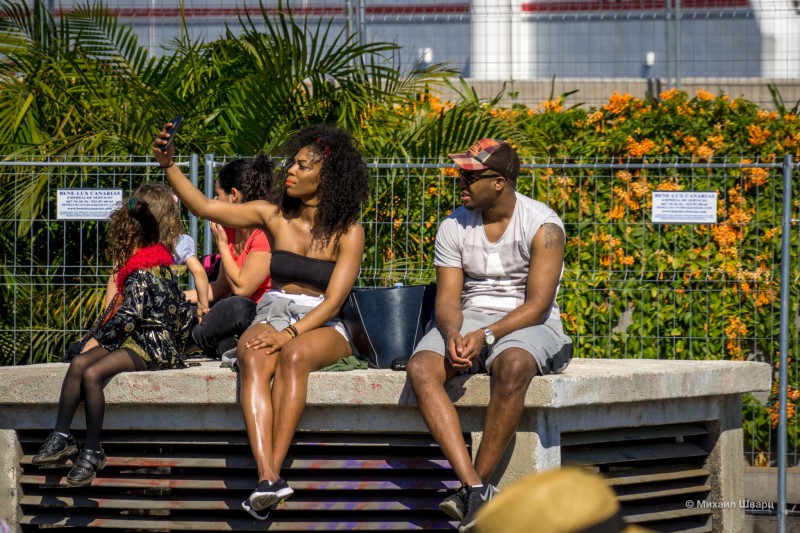
We took 2 chairs in a wide area to take great photos. We had to pay €2 per chair.
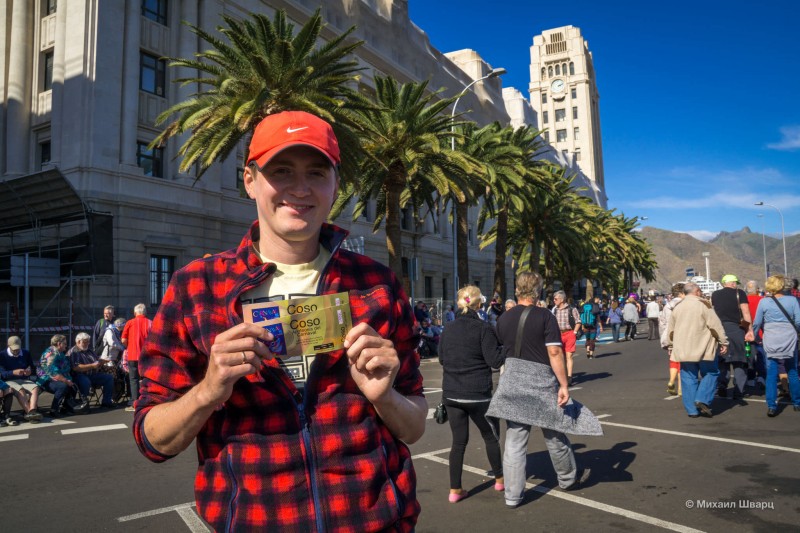
Not all children were bought a seat, so they settled right on the asphalt. There were so many dressed-up, cheerful kids!

Closer to 4 o’clock, the first platform appeared in the distance. The music was playing loudly. A little man in a wig led the merry column.
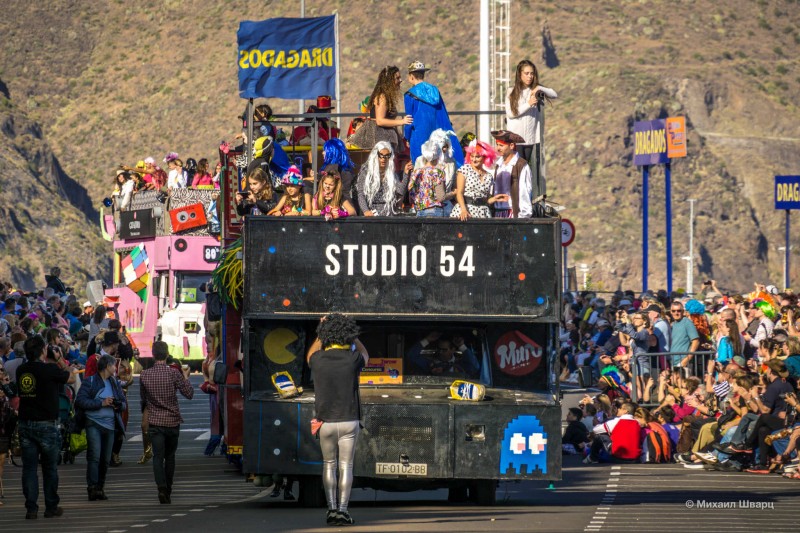
On the roof of Studio 54, everyone was just starting to fuel up with alcohol and waving very lazily to the spectators. Oh, what mischievous fun there will be in the evening!
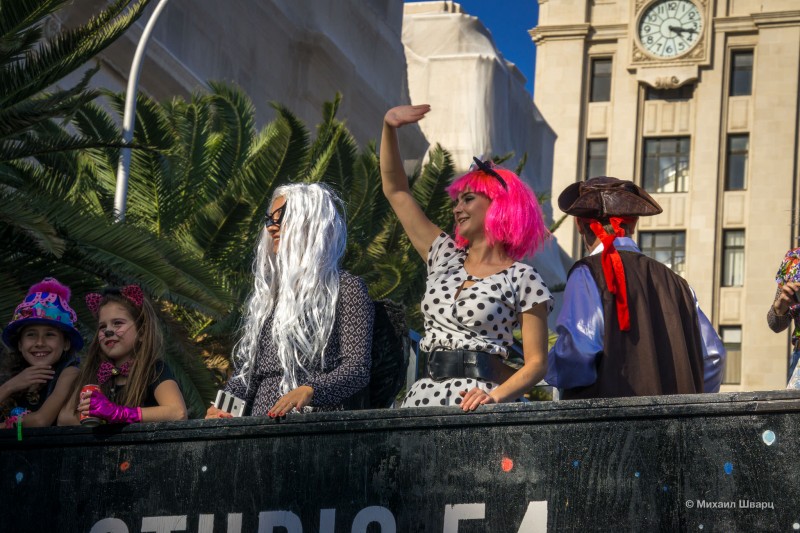
A middle-aged lady in a bright pink puffy dress, with pink hair and springy ears, was riding with us on the bus from Los Gigantes. It’s clear this isn’t her first time. By the way, the king and queen are passing by…
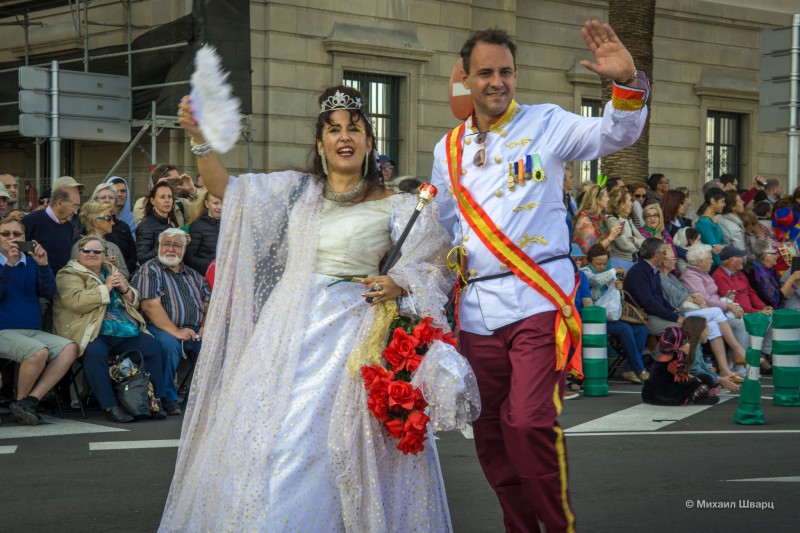
Everyone participates in the carnival: locals and visitors to the Canaries, mature people and youth; children have their own mini-carnival. The island’s top beauties take part in the casting for the role of the festival queen. Numerous designers and tailors create costumes, while an army of props masters crafts props and decorations.
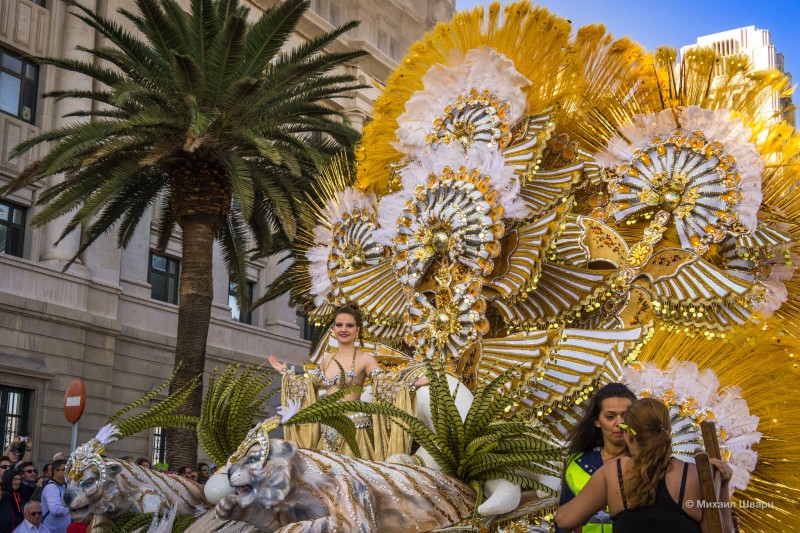
The Queens were chosen last week in the concert hall. By the way, I’ll tell you a bit about the carnival program. It lasts for almost a month!
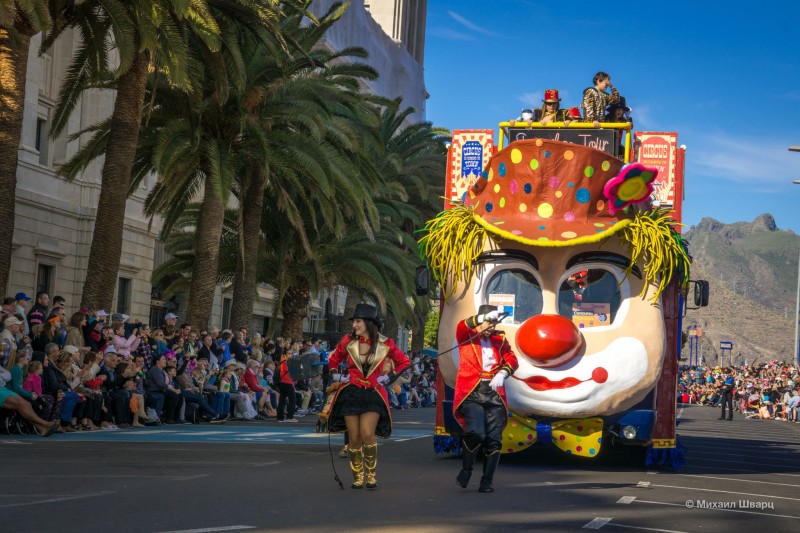
Main Carnival Events
The Carnival opens with the Pregon ceremony. The host introduces the event program to all gathered, after which Murgas and Comparsas — local music and dance groups — perform. They sing verses and songs dedicated to current events.

The first ceremonial event is the Queen’s selection (Gala Reina). Contestants for this role appear before the jury in incredible outfits. Meters of fabric, numerous feathers, kilograms of sequins and rhinestones are used to make the carnival dresses. We weren’t at this event, but we saw some queens at the parade, I’m attaching photos.
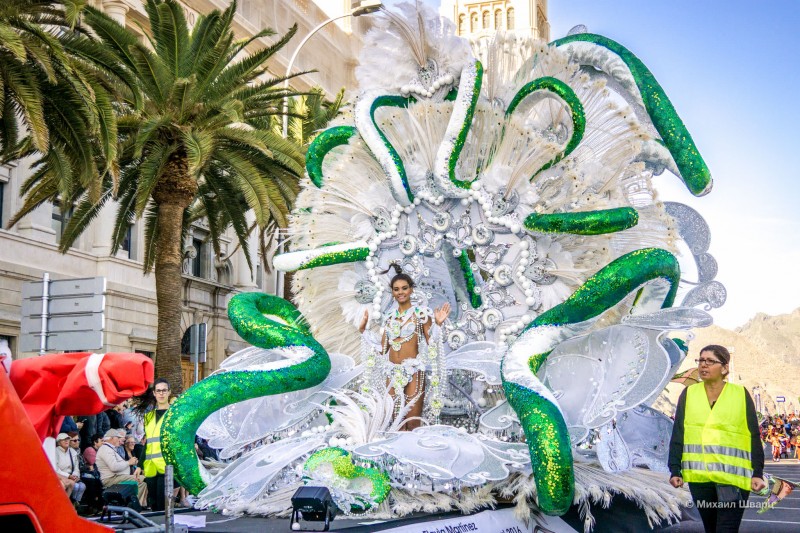
The jury consists of celebrities, both local and visiting. The girls must be beautiful and enduring — it’s not easy to move around the stage when your outfit weighs dozens of kilos. The newly elected queen takes the place of honor.
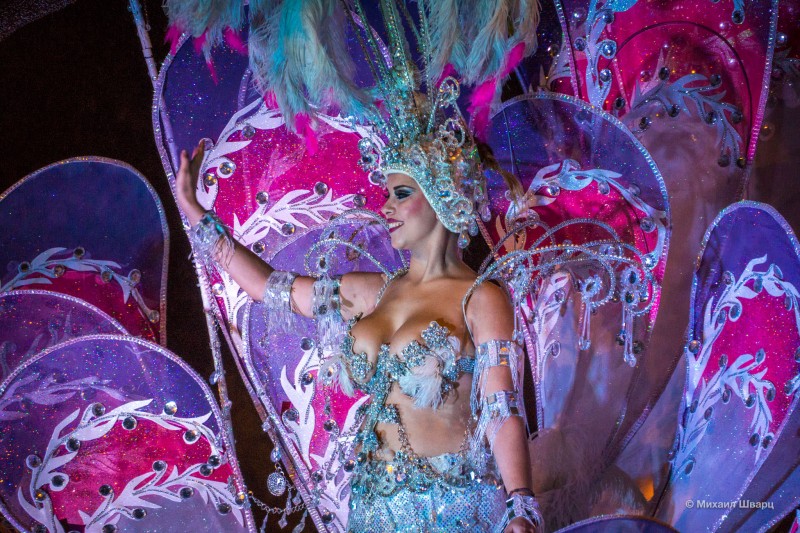
Just imagine how a fragile woman drags behind her an elegantly decorated huge trailer made of feathers, rhinestones, and colorful ribbons. At the contest, they do all this by themselves without helpers. But today at the carnival, they were simply loaded along with their dresses into the back of trucks and driven around to the delight of the public.
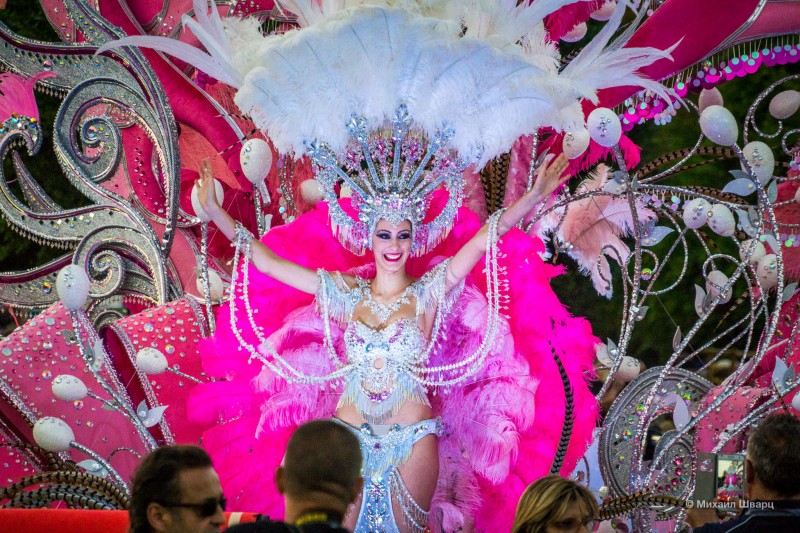
There’s also a competition among children. Look at the child queen of the carnival. Lena didn’t immediately recognize her as a girl. She says she looks about 30…
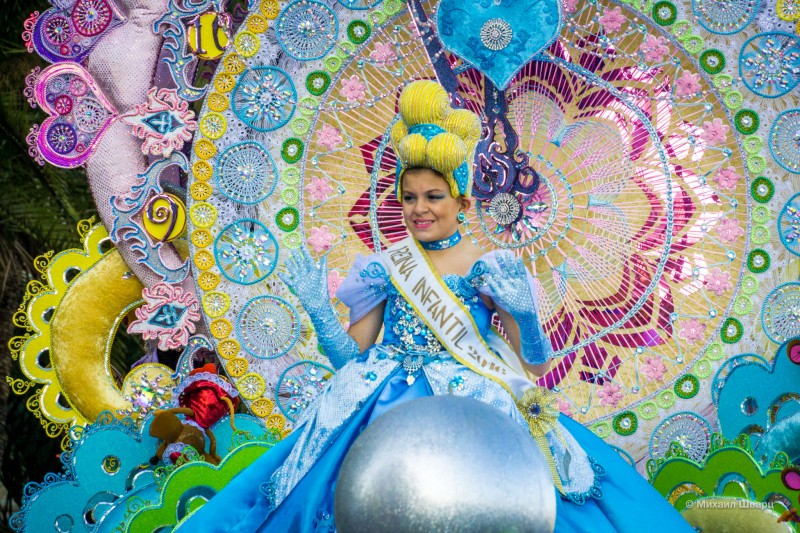
The first carnival procession is called Cabalgata Anunciadora. For more than four hours, a procession announcing the opening of the main celebrations walks through the streets of the island’s capital. After this, a series of performances, parades, and contests begins.

These include: Drag Queen — a procession of transvestites in elegant dresses and high platform shoes. Mogollones — free open-air concerts, a parade of vintage cars, selection of the queen of the children’s mini-carnival, and much more.
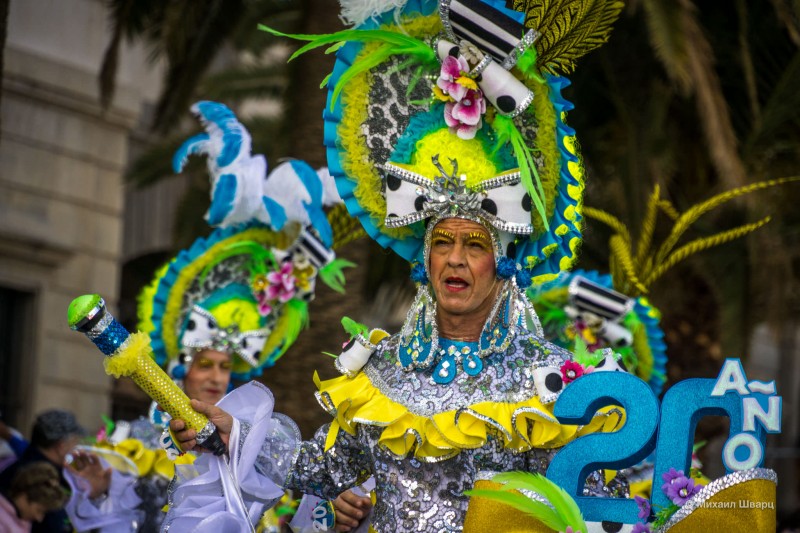
The culmination of the festival is the Gran Coso parade. It takes place on Shrove Tuesday and becomes the apogee of the celebrations. Hundreds of thousands of participants join the mass procession. It lasts for many hours — the streets are filled with a dressed-up crowd moving to the exciting Latin rhythms. Everyone dances! Street dancing is accompanied by loud music and firecracker explosions. The crowded action is illuminated by fireworks and only quiets down by morning. This is exactly what I’m telling you about today.
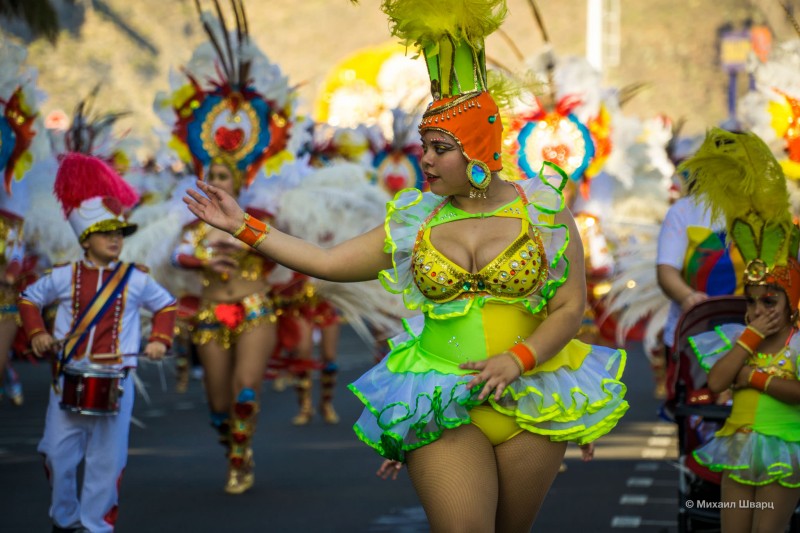
Folklore ensembles, dance and music groups perform, theatrical groups give gala performances. Businesses and companies operating on the island always send their representatives to the festival. Everyone who wishes, regardless of age, gender, or status, is involved in the cheerful costumed processions.
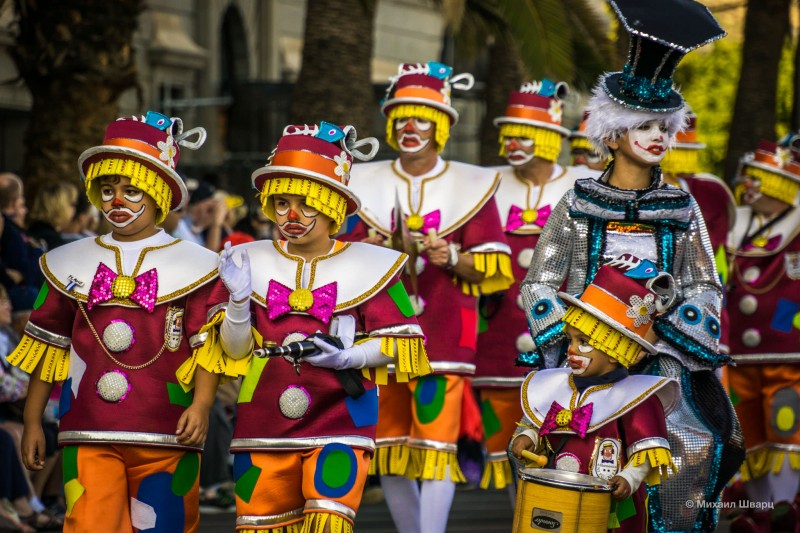
Children
Children hold a special place at the carnival, perhaps this daytime show is organized especially for them. Everyone participates in the parade, from kindergarteners to high school students.
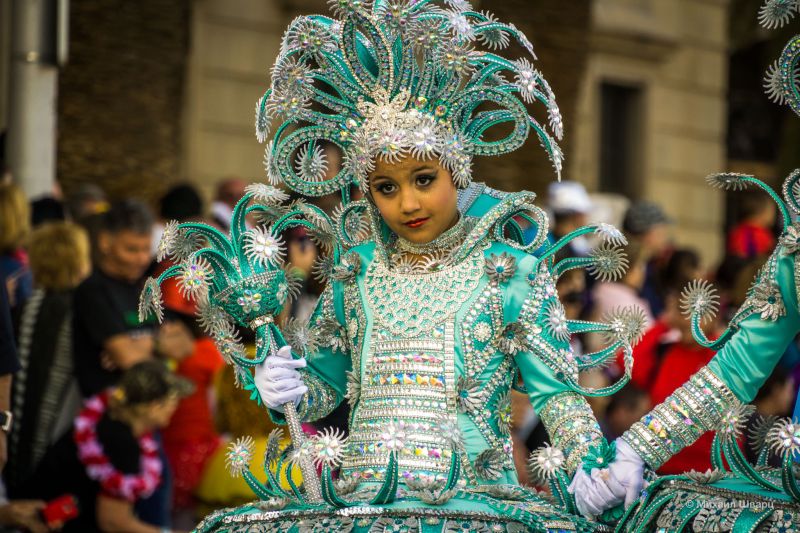
Here’s a girl happily posing for everyone in a beautiful dress.
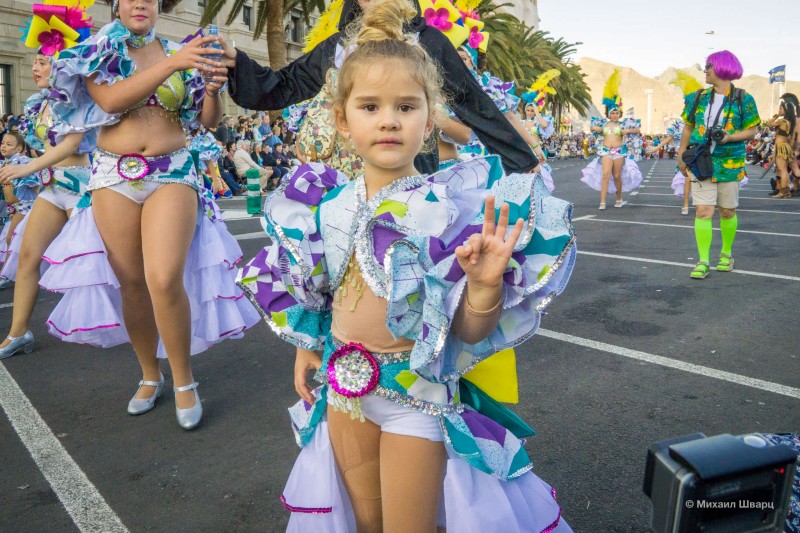
High school students have all dressed up as fortresses with clocks and an owl on their heads.
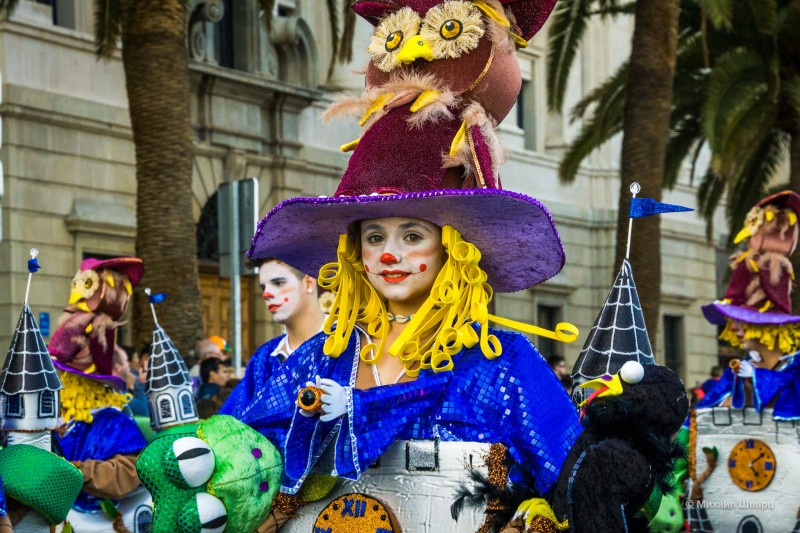
And this is probably a kindergarten group. They’re walking, laughing, and blowing soap bubbles.
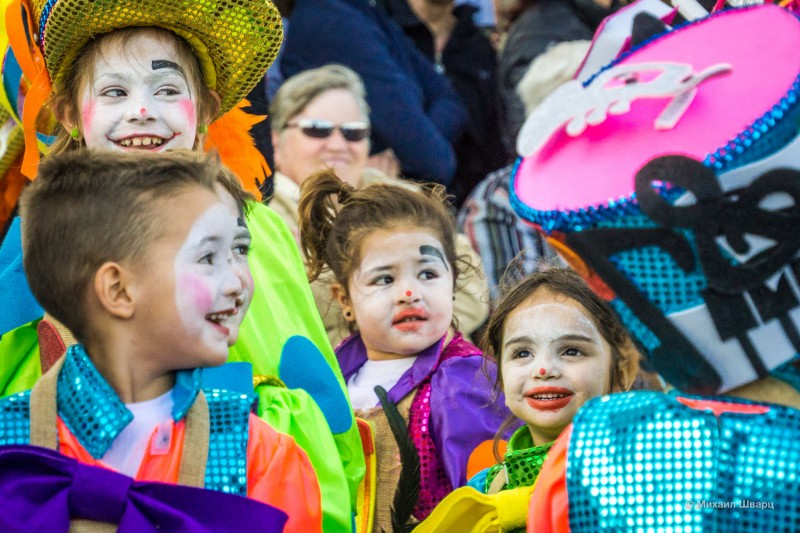
There are some very original costumes too. A triton riding a shark with a voluptuous mermaid with a pink tail.

Another nominee for the title of children’s queen. Her dress looks like a toy store.

A little girl dressed as a cake is walking with her mom, they might be representing a local bakery.
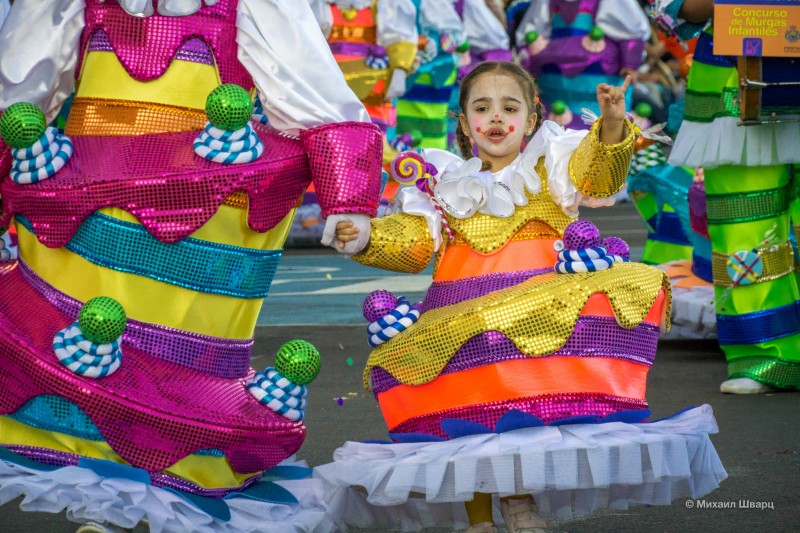
A pensive boy-unicorn, lost in his own thoughts.
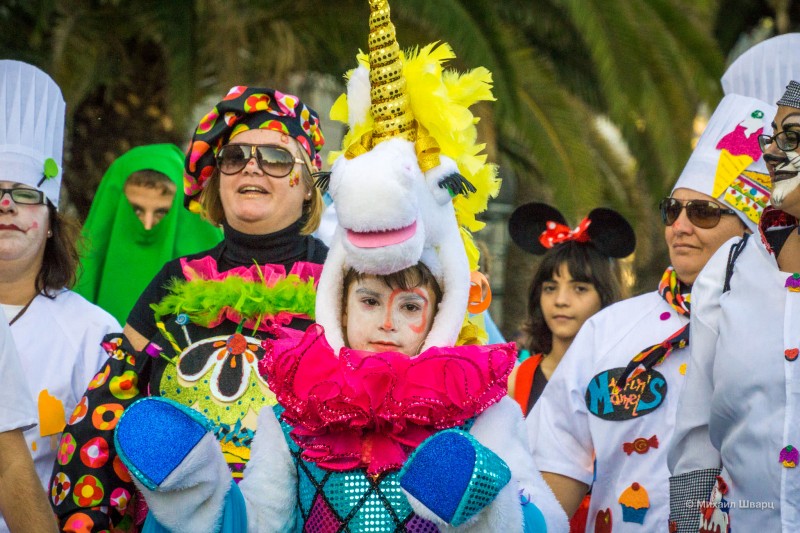
Mischievous boys dressed as roosters are chatting animatedly and crowing.
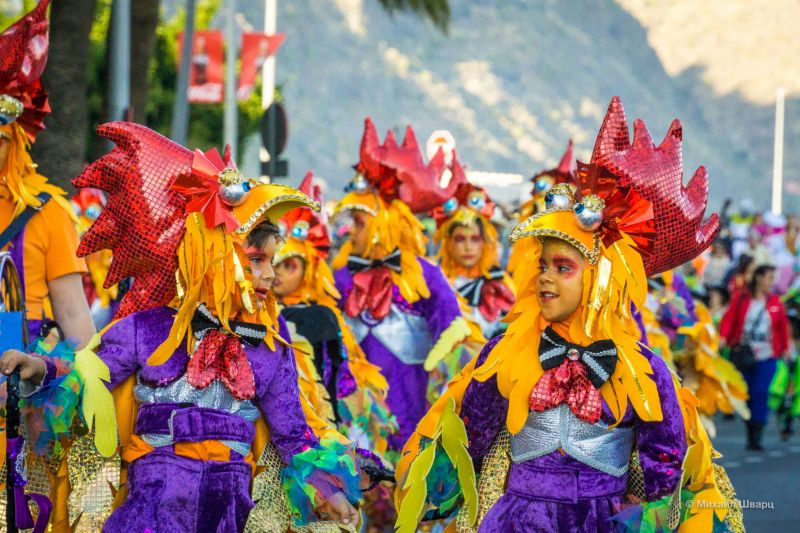
Little flamenco dancers in bright green dresses and black hats.
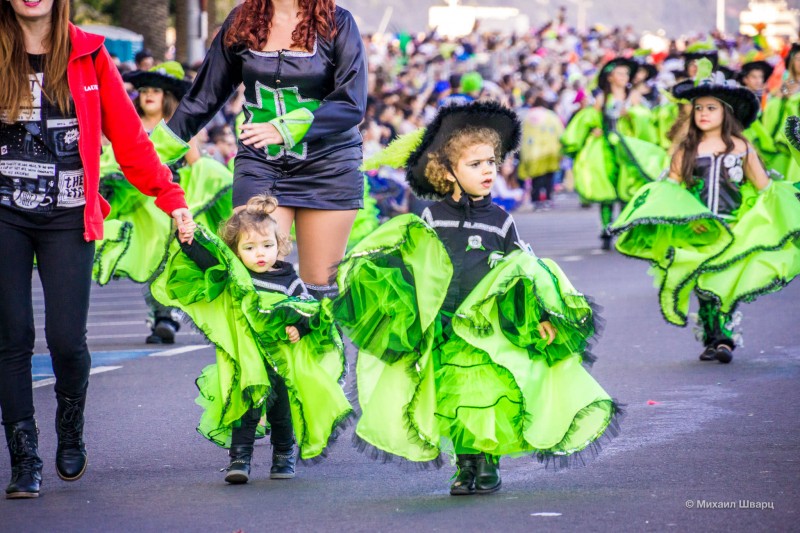
And how could we forget the local delicacy? A man carrying a sack on his head filled with what? Canary potatoes, of course!

Freaks
The most popular costume at the carnival is a man in women’s clothing. A sassy lady-boy from Moulin Rouge. Perhaps in everyday life, he’s a stern manager at a pump store for oil refining companies, but here he’s a star!
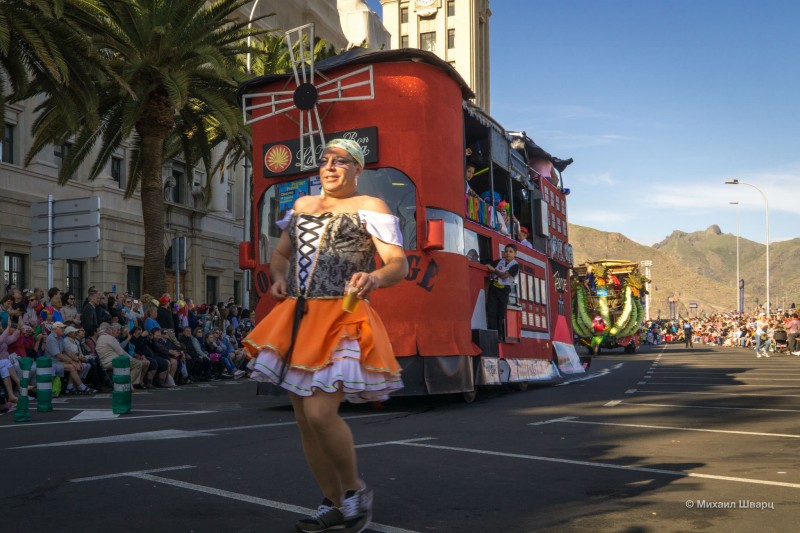
We saw this lively little man with a backpack a week later on the other side of the island. He was still dancing along the road in his hat, with a can of beer in hand.
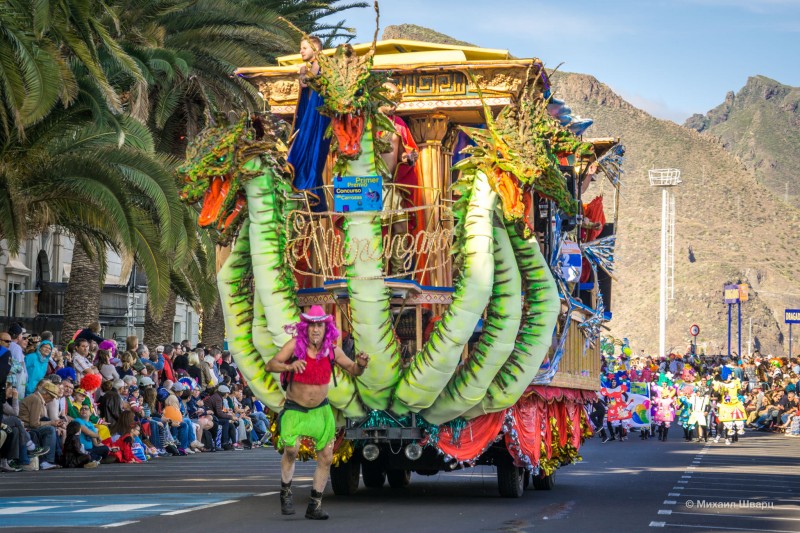
A milkmaid?
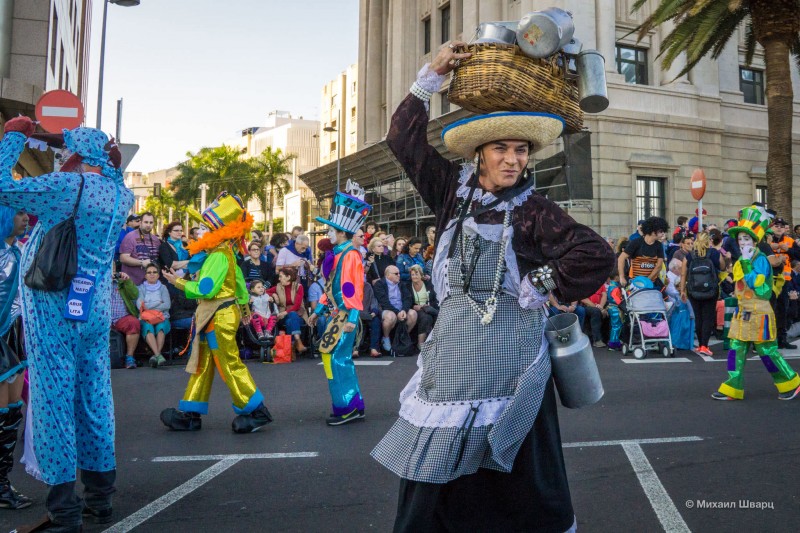
Well, why not? Borrowed some underwear from a girlfriend, put it on, and voila – costume ready.
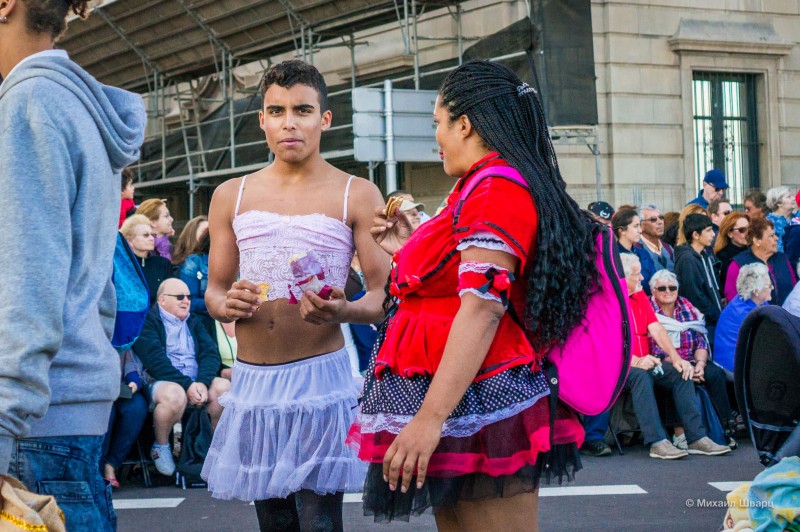
Wonders of sewing and tailoring. With just fabric and foam, you can make fake boobs and a Brazilian brown butt.
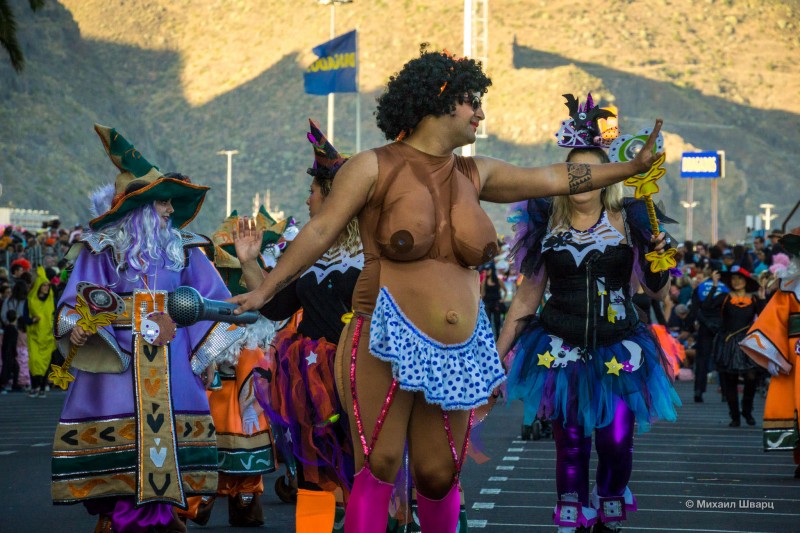
Or this kind of Brazilian brown booty.
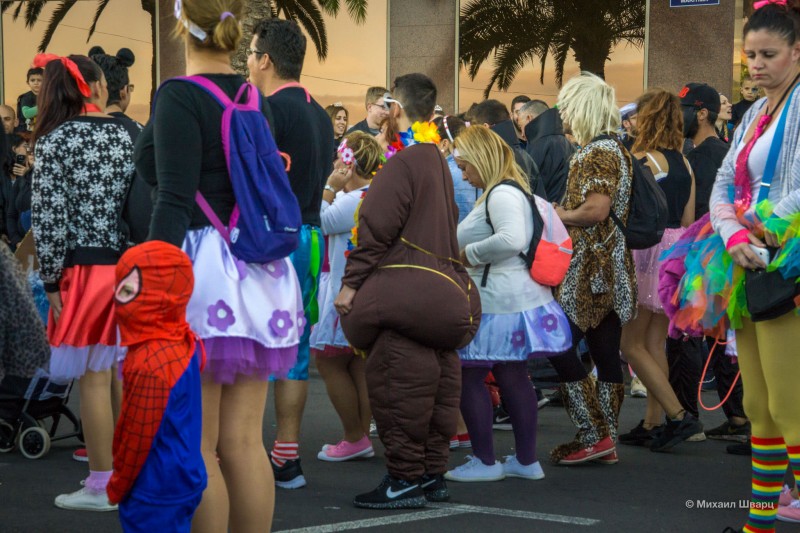
Or you can just shock everyone by walking around in grandma’s silk robe, shaking your willy.
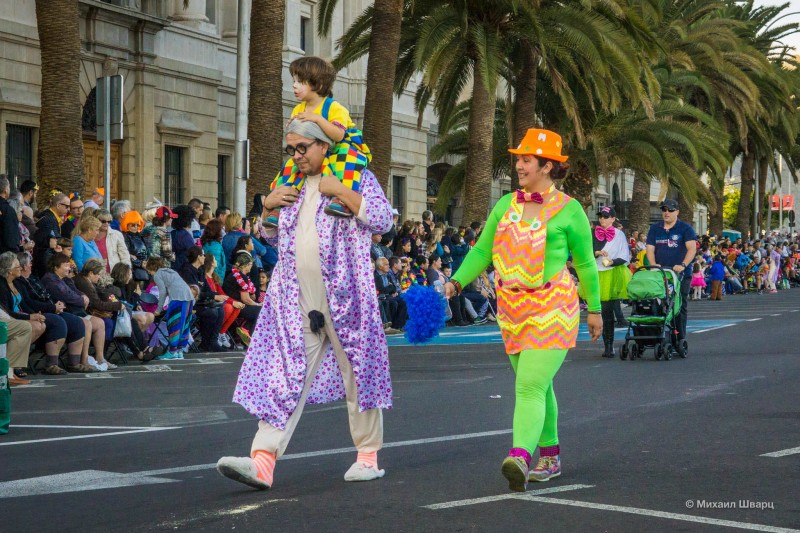
And these representatives of gay Europe… Uh… what can I say…

The immortal old Jackson himself with his formidable security.
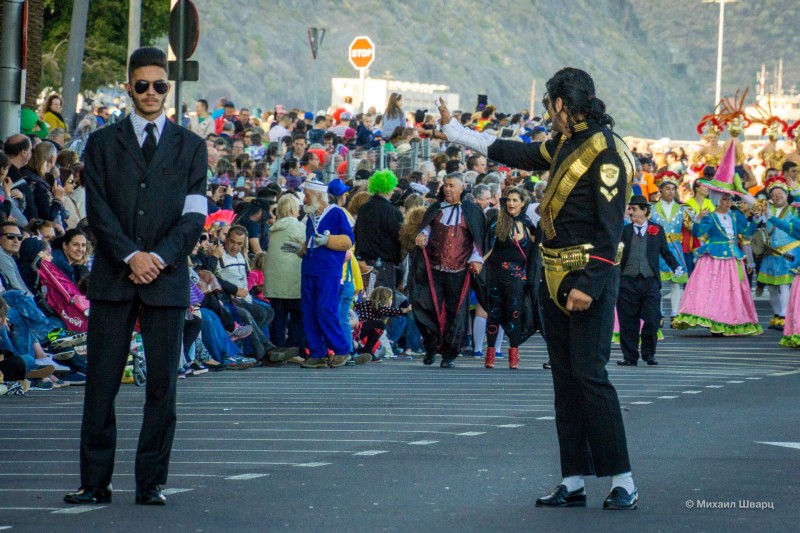
A punk with tattoos and… a little dog.
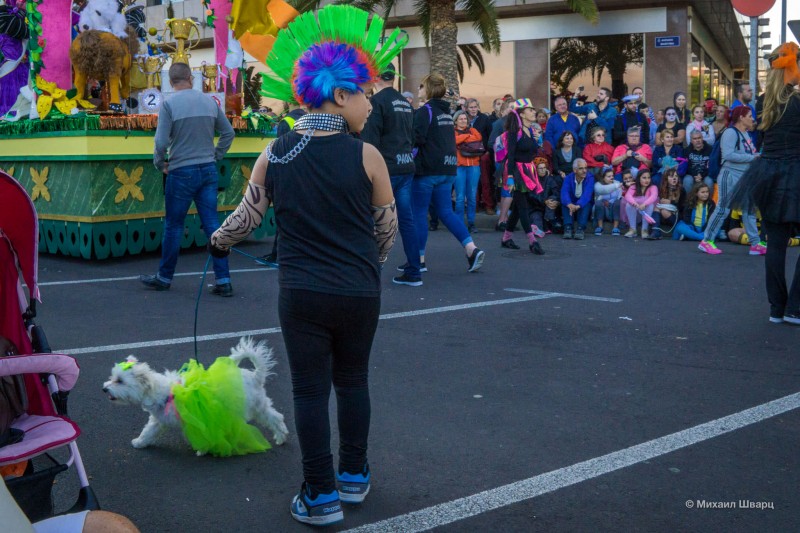
The tradition of holding carnivals in Tenerife dates back to the 17th century. European customs came to the island with the conquistadors. The first masquerade festival can be considered the staged wedding of Philip IV’s court. Everyone dressed up: courtly men as ladies, the king as a footman, the queen as a commoner. Ordinary island residents also hid behind masks at that celebration. Remaining unrecognized, they could mock the shortcomings of their masters. The carnival freedom removed all prohibitions and prejudices.
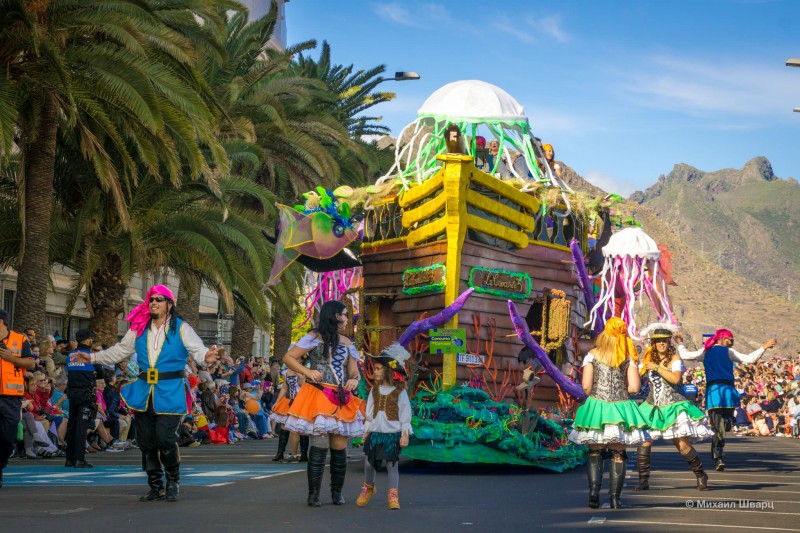
This principle is still followed today. During the carnival, all norms of decent behavior are suspended — people allow themselves harmless mischief and even petty theft. Masks hide all transgressions! It’s tough for the police at this time, but no hooligans can destroy the amazing atmosphere of the festival.

In the history of carnivals, there were periods of flourishing, times of stagnation, and cruel persecution. During the years of Franco’s dictatorship, the festival was banned, and even its name couldn’t be mentioned. Later, the official ban was lifted, but the carnival was condemned and considered an unworthy event. The residents of Tenerife ignored the prohibitions and prejudices and held their carnival illegally.
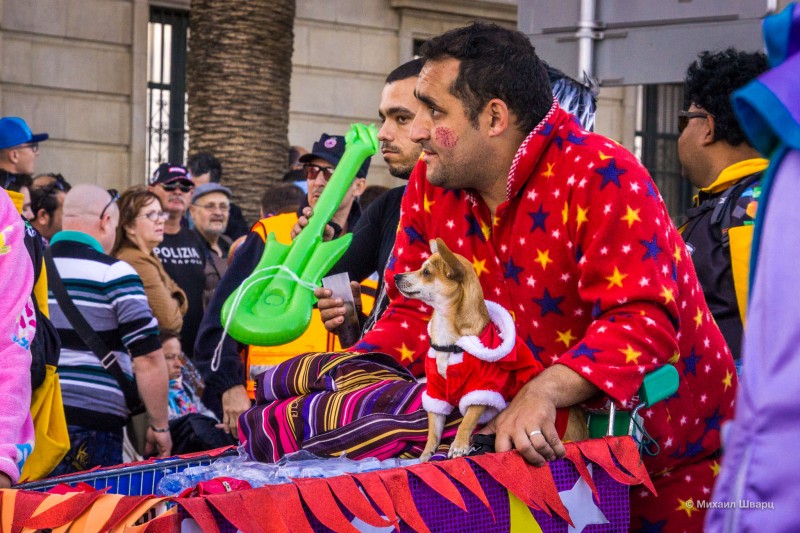
The tradition was revived by 1961. In 1967, a «Winter Festival» was held, which attracted tourists to the island. Soon it was renamed the Carnival. Since then, El Carnaval de Tenerife has once again become a nationwide celebration — respected and loved.
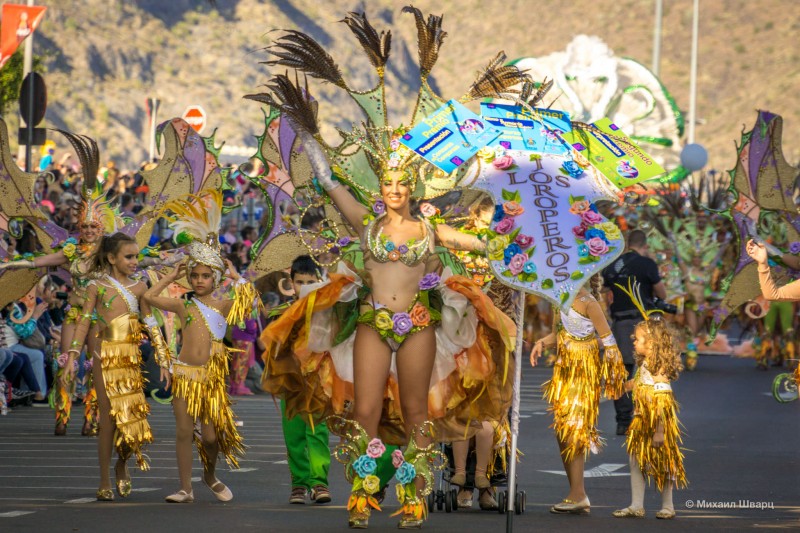
Since 1976, the festivities were officially allowed by the government and included in the calendar. Since 1980, the festival has become an international event. The 1987 carnival held in the capital was entered into the Guinness Book of Records. Then, more than two hundred thousand people simultaneously participated in street salsa to the songs of Celia Cruz.
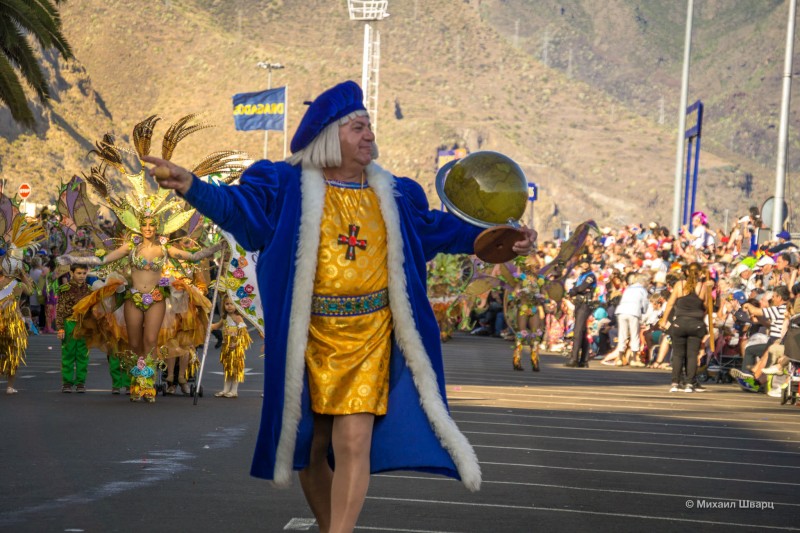
Year after year, the festival becomes brighter and more extensive. Each time, the main theme of the new carnival is determined. Usually, it is related to historical events and is published on the official website of the event.
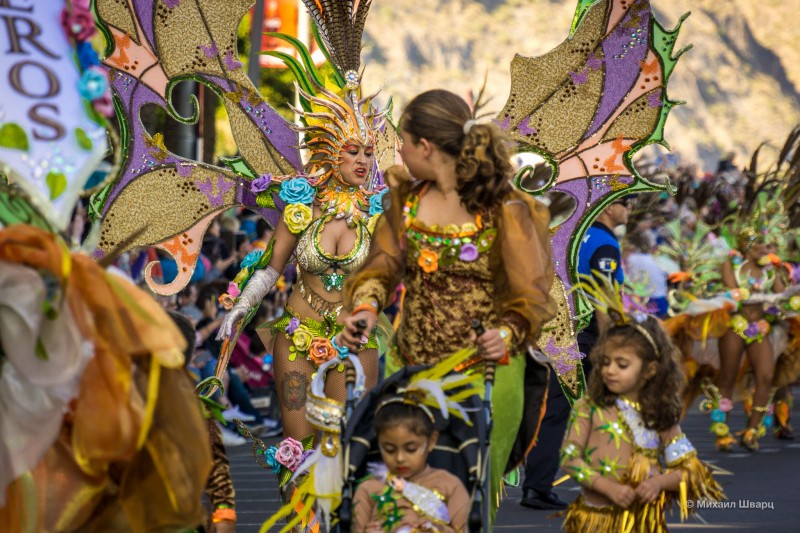
Ordinary residents of the Canary Islands show off in front of the audience without complexes. Everything happens sincerely and naturally. It’s worth noting the cheerful grannies.
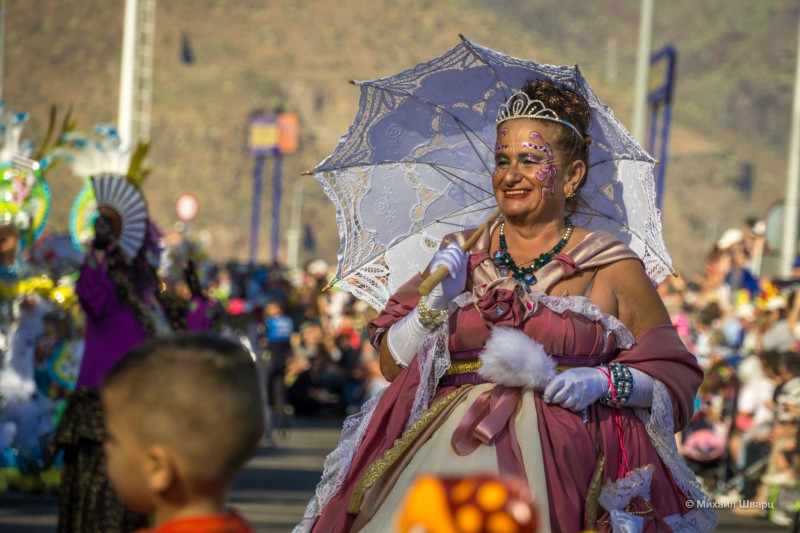
Ladies of any age are beautiful and attractive.
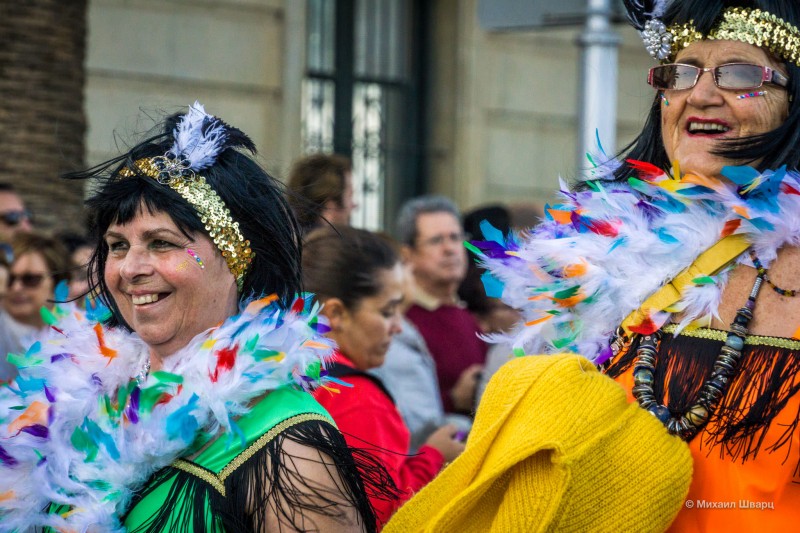
No one is ashamed of their body. Everyone loves themselves as they are.
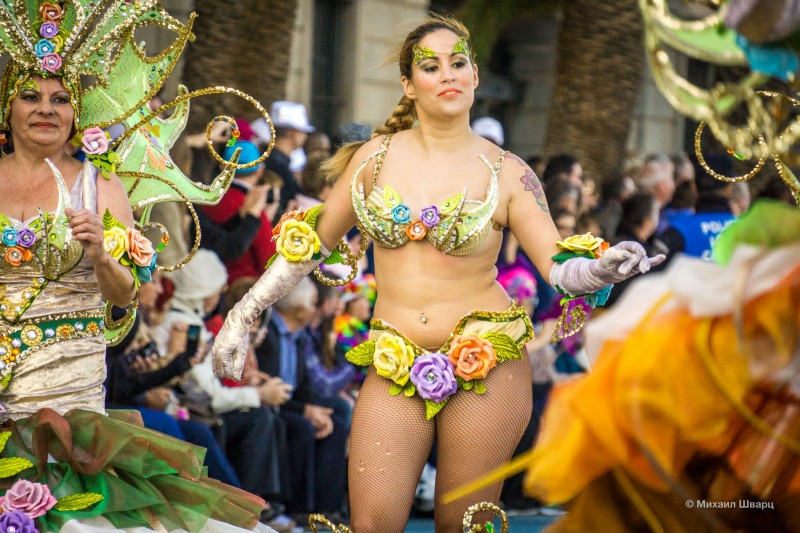
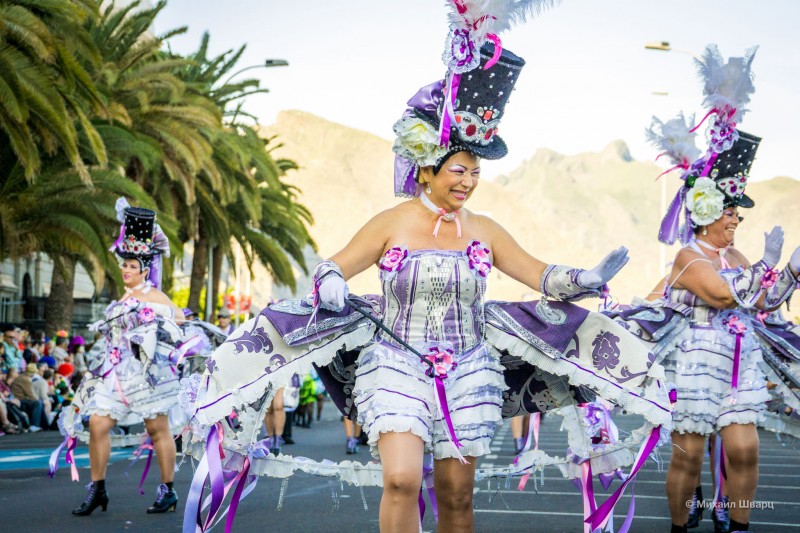
I even saw an elderly queen in a chic bright dress.
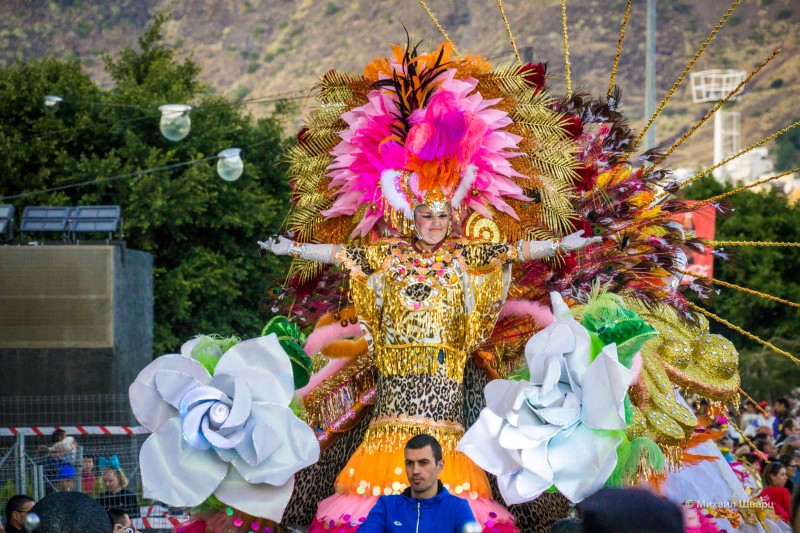
Not bored yet? Here’s a bit more positivity.
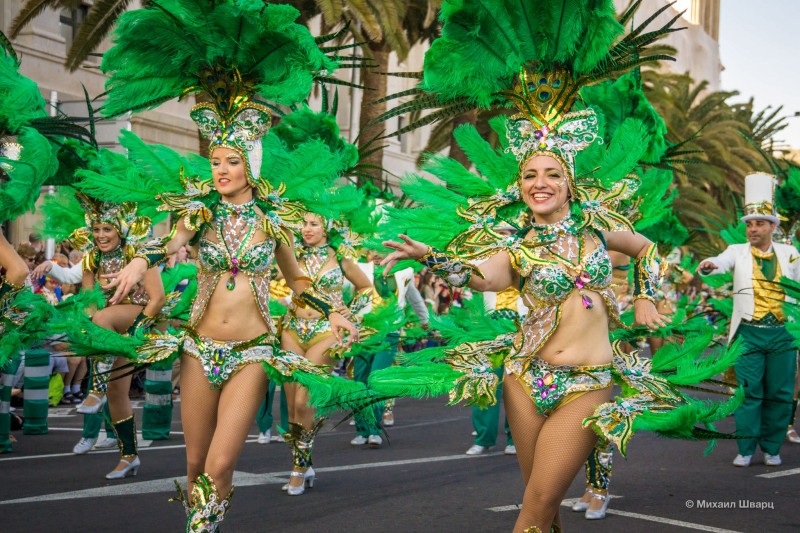
I know what you’re waiting for most — more queens with huge… dresses. How about another mermaid?
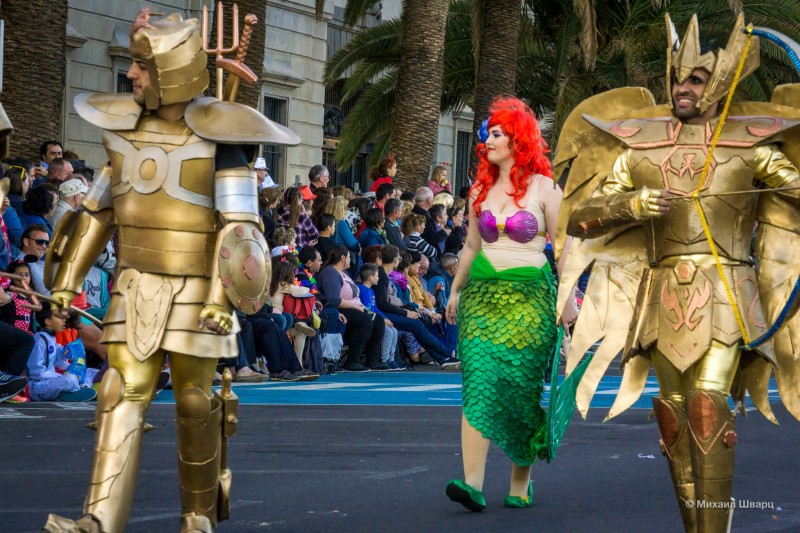
Just kidding. Here’s everything I photographed.
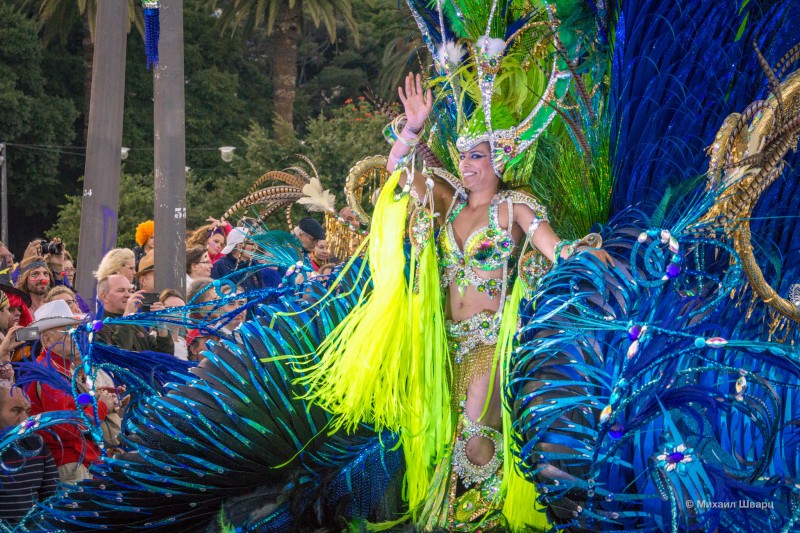
A girl’s dress should be minimal, while the plumage should be as spread out as possible.

Greetings from Tenerife!
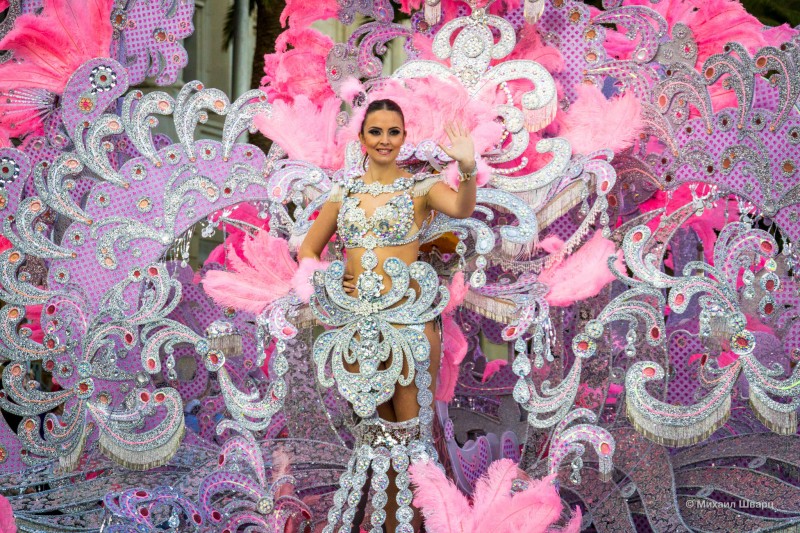
Almost all dresses had another girl in a more modest dress standing behind. Probably an understudy.
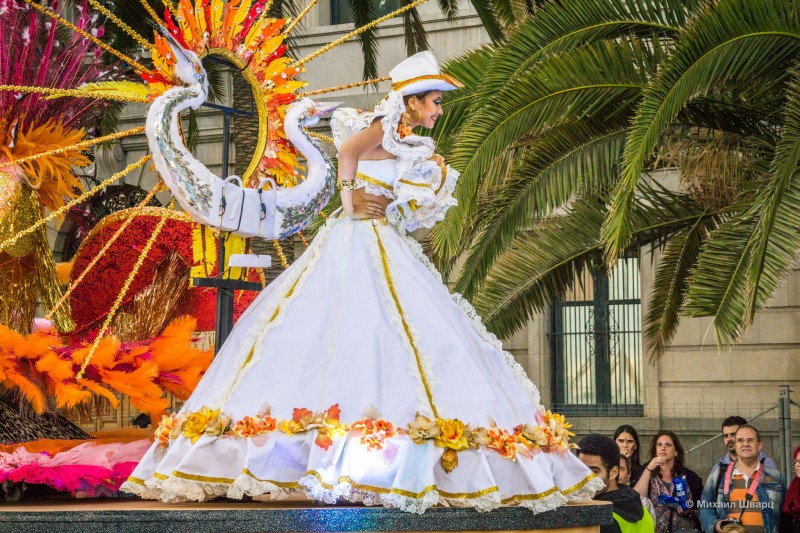
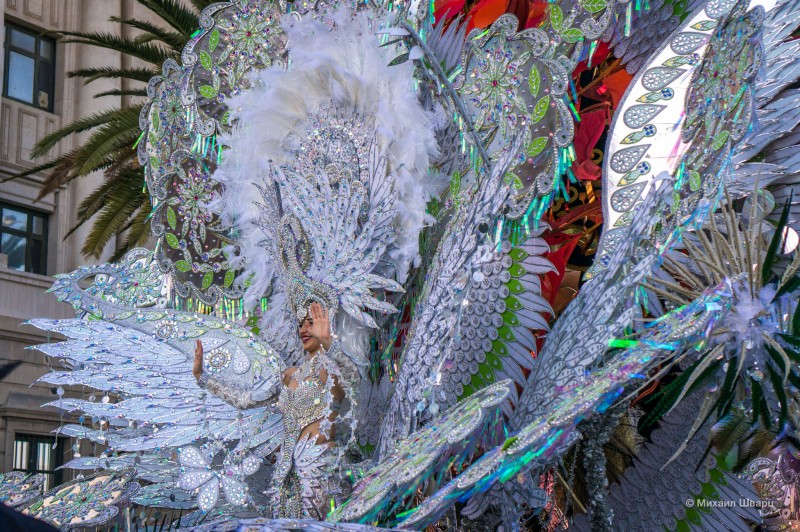
Very original, like a snow queen with frozen icicles made of colored ice.

Another gorgeous lady.
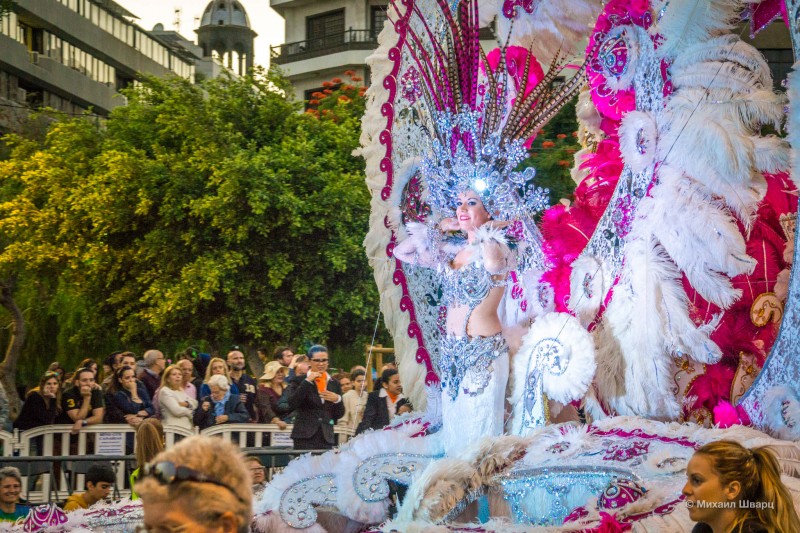
And one more.
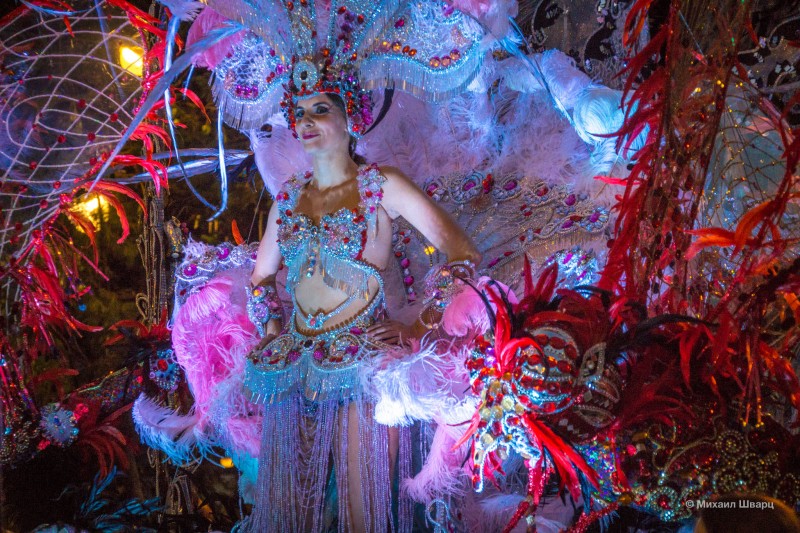
Now it’s time for dancing!
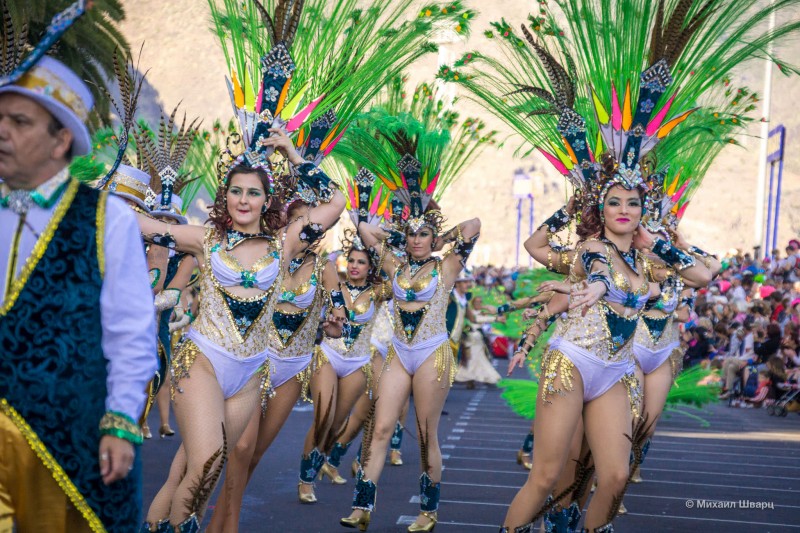
Yes!!! A guy with a bandolier of strong liquor. He walked around offering everyone whiskey or vodka.
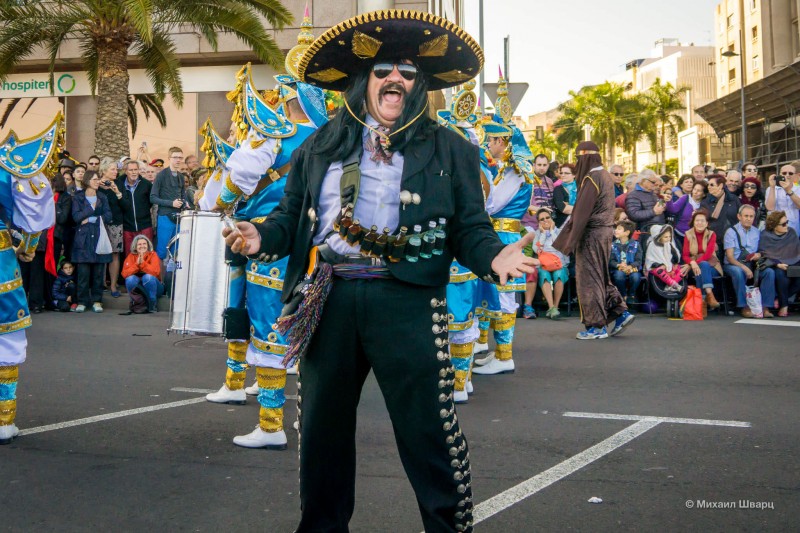
This couple, on the contrary, is for a healthy lifestyle. Slim, fit. A gladiator and his beloved.

A girl with a camera. Very cute.

The gang from the legendary game of all time — Pacman! Remember how the little round guy ran across the screen eating apples?
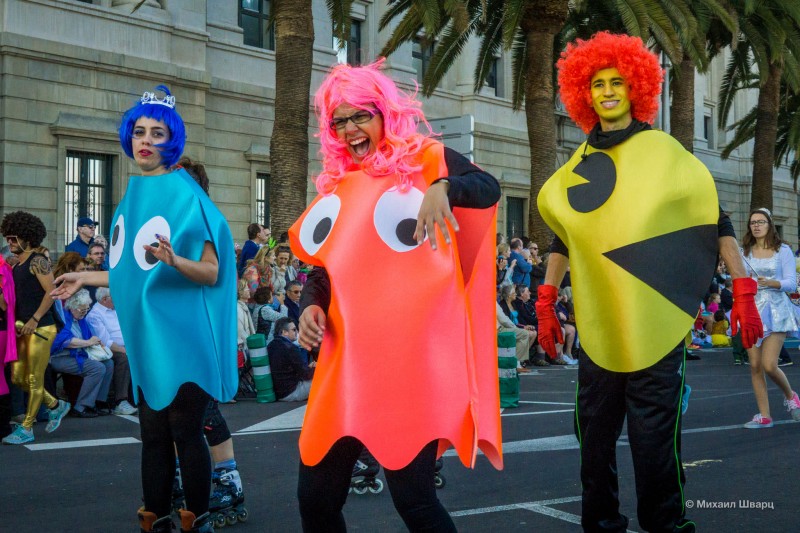
Carnival, carnival!

Girls with bells.
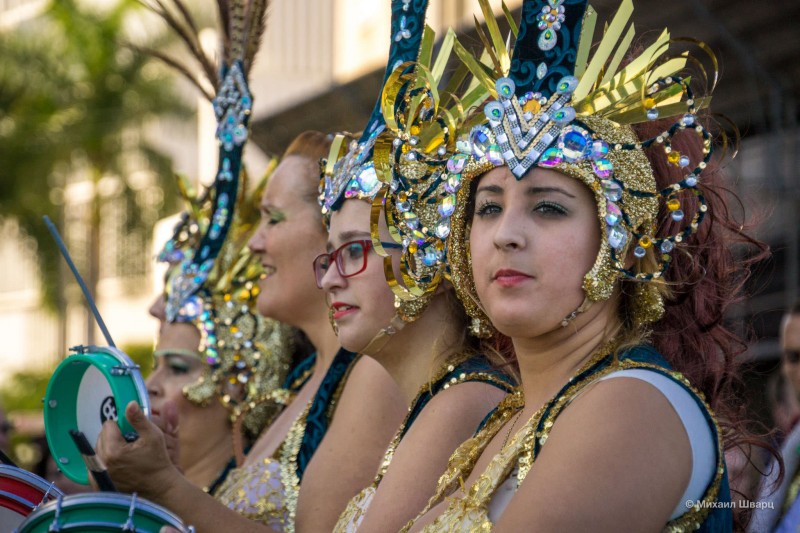
Some Thai costumes.
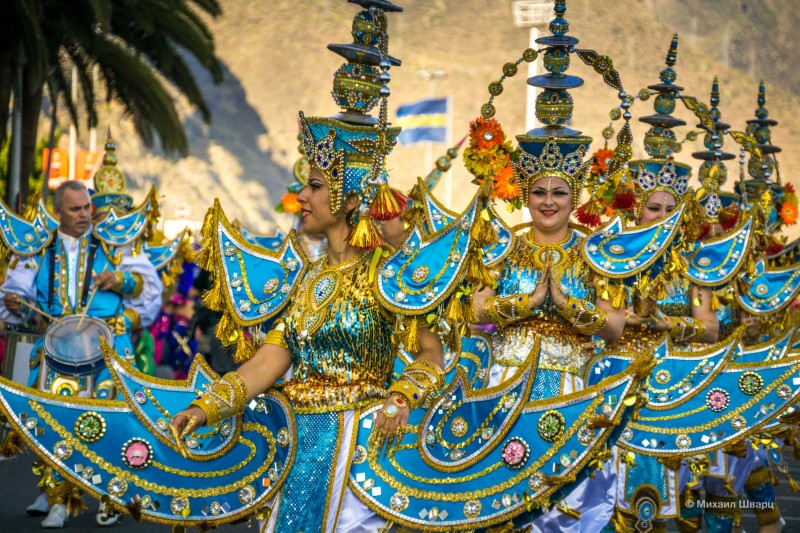
Wow, what hats!
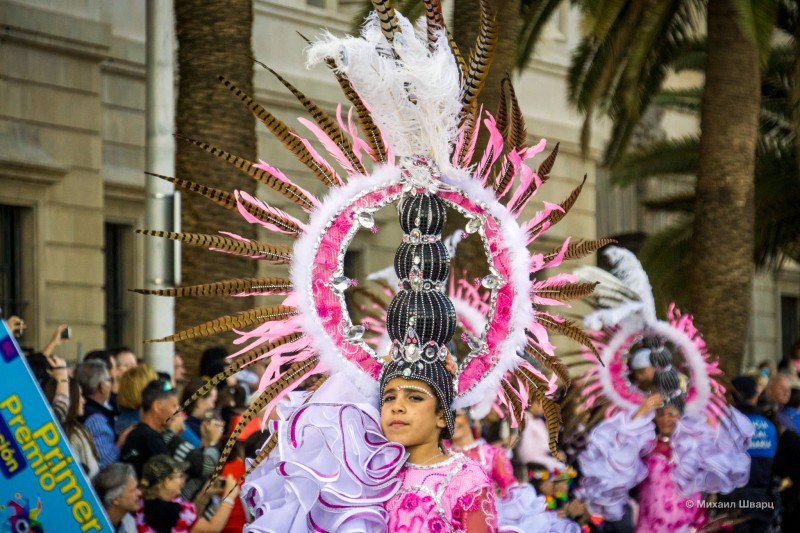
A hipster on a bamboo bicycle.
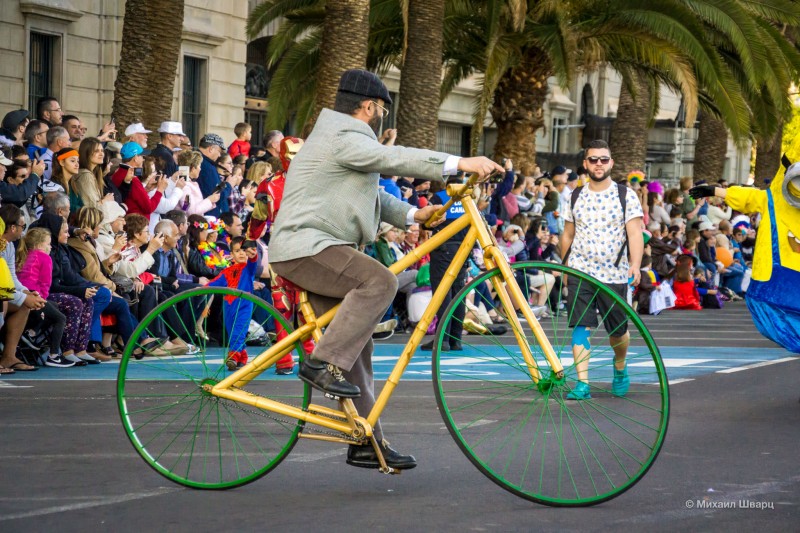
A bicycle made of wire. Trendy, isn’t it?
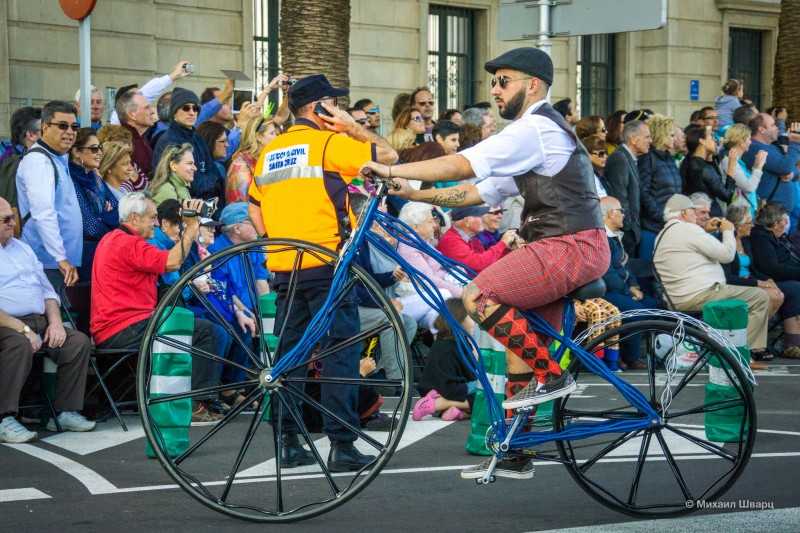
Yes, cool bicycle!

How do you like this Ferrari?
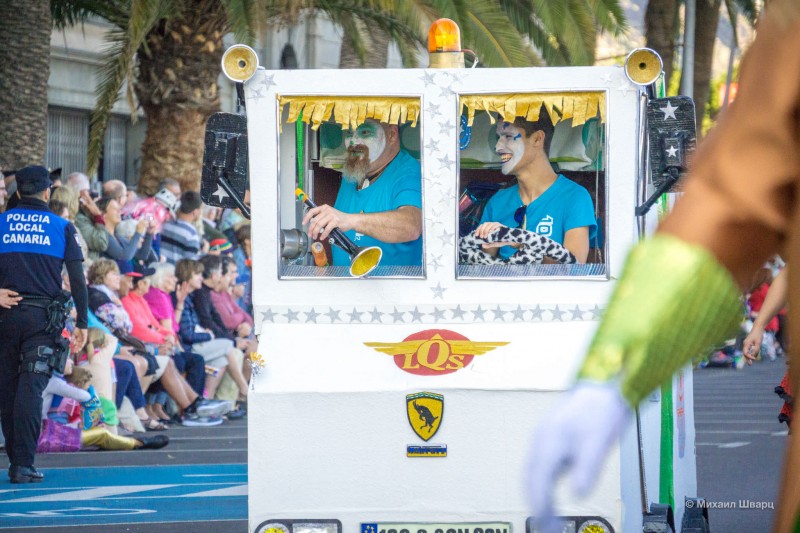
Elvis is alive! Though the guitar is a bit small.
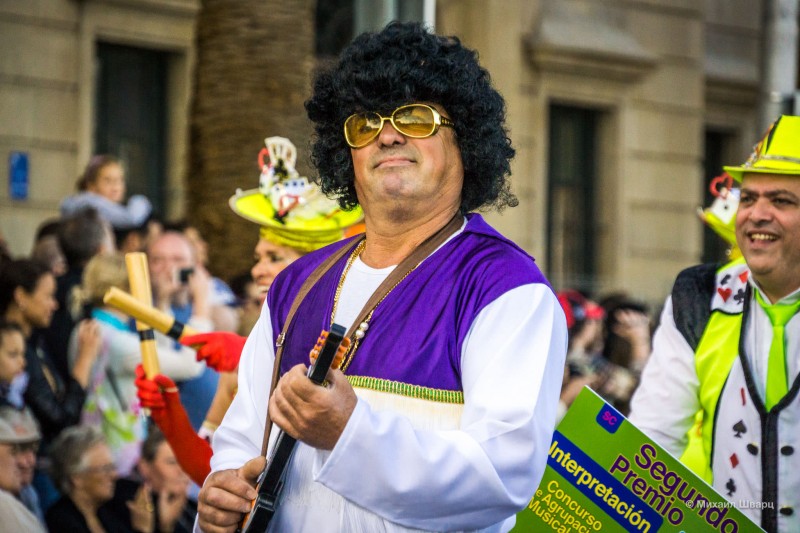
Cheerful drummers.

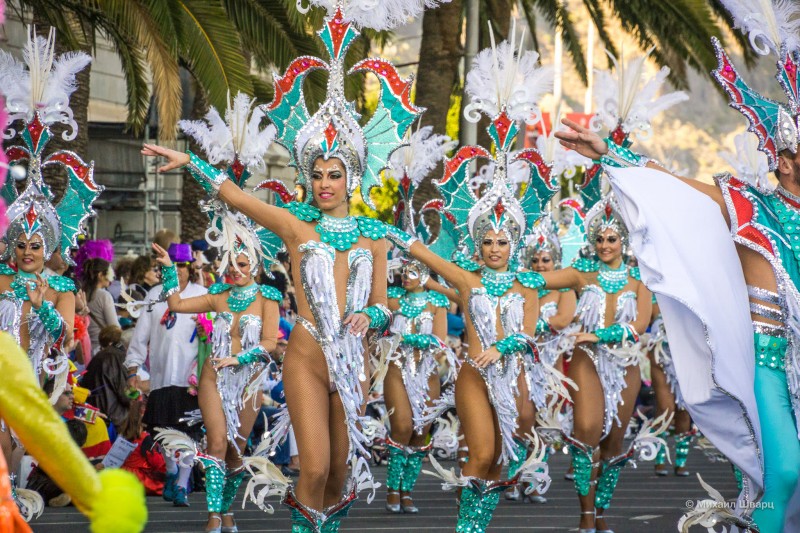
Ghostbusters and the green Slimer made of polyurethane foam.

The little ones want to participate too. Notice the smoked baby in the background.
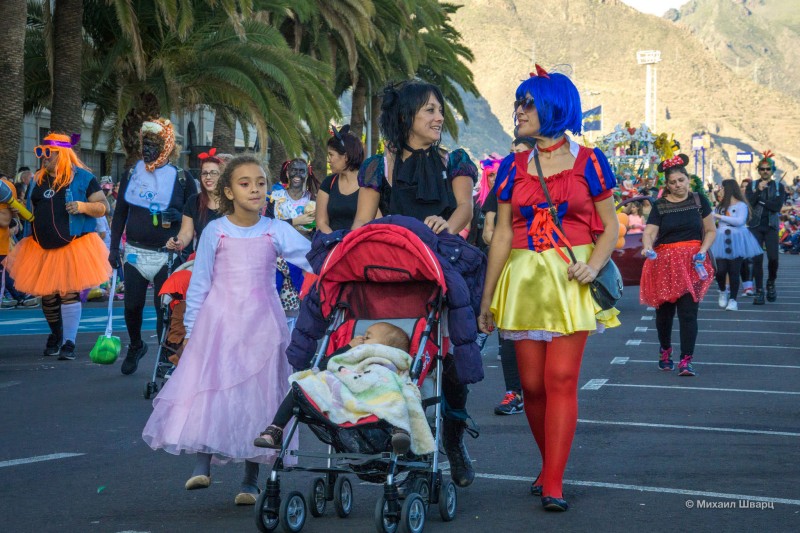
Cake hat. Don’t forget about the Shrek cookie.
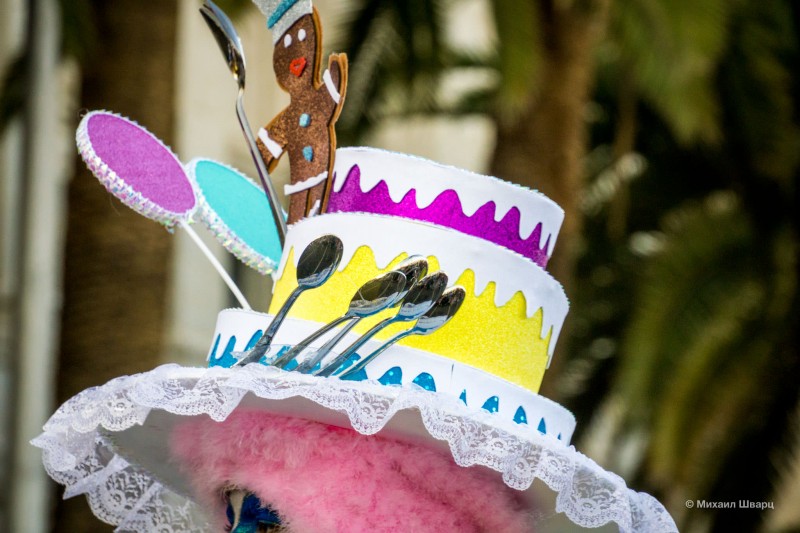
Another child queen. I like this one better.
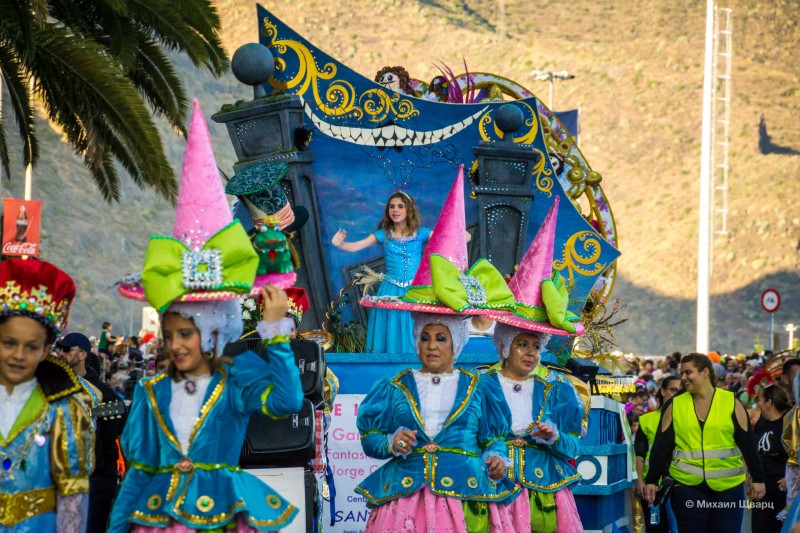
Little gymnasts put on a whole show. They spun, tumbled, and did the splits.
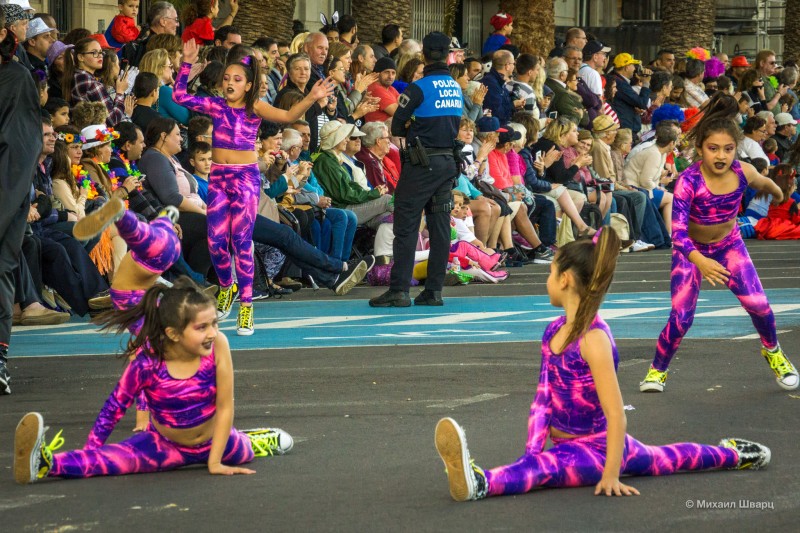
When everyone was told to smile…
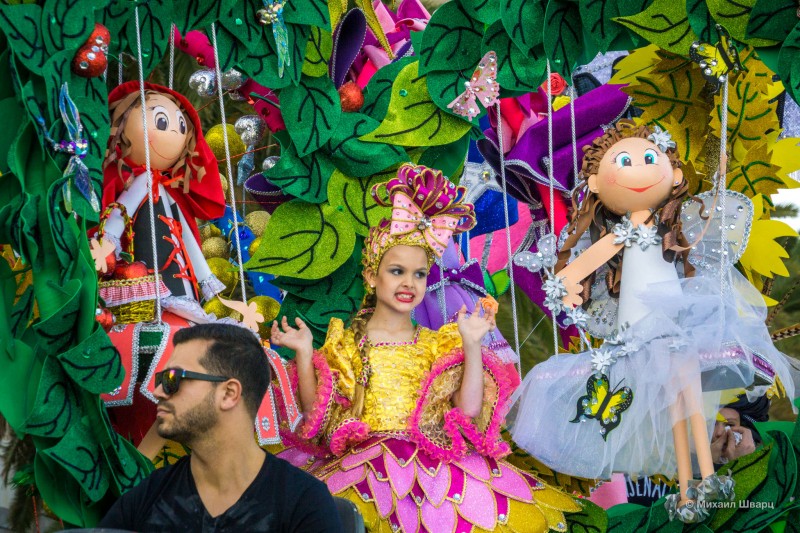
Hulk, Iron Man and Spider-Man.
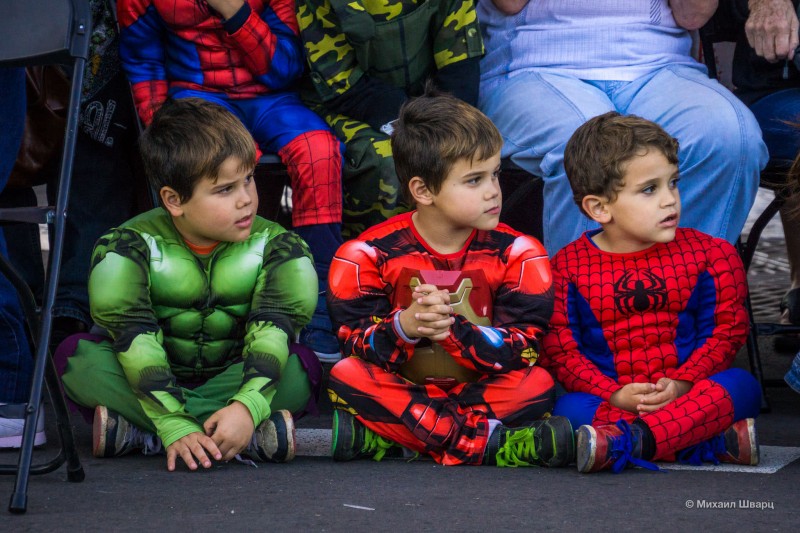
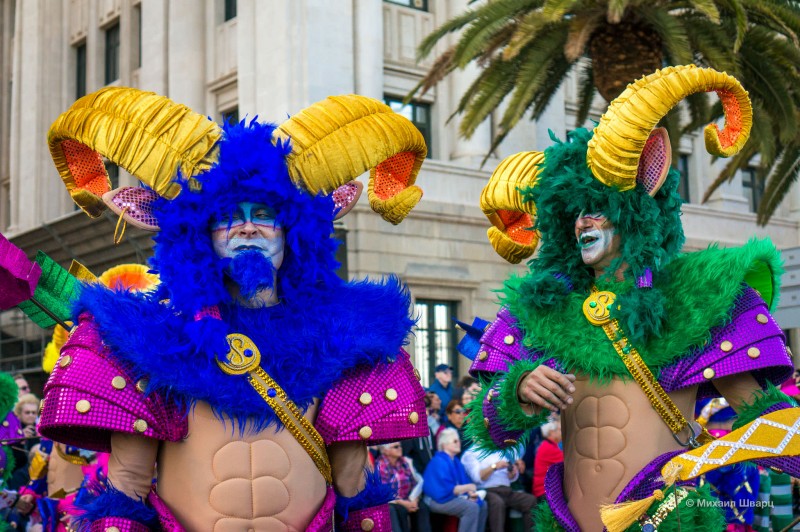
Cool ladies.
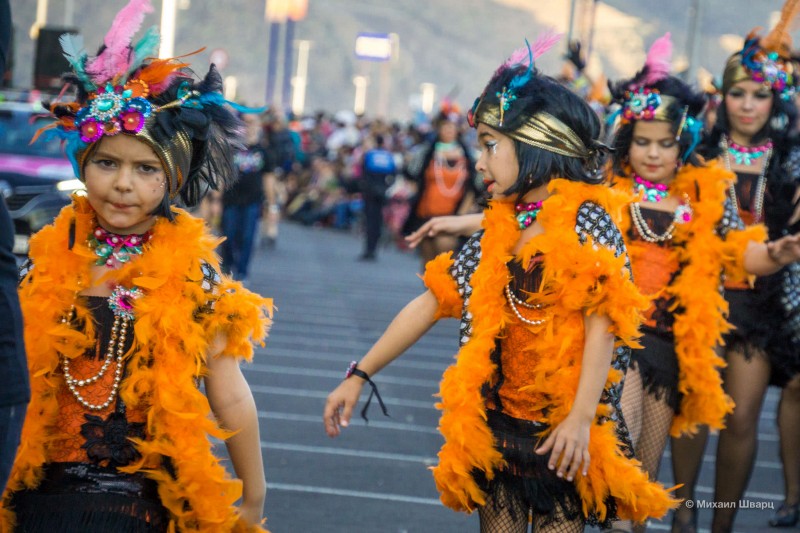
Little elephant.
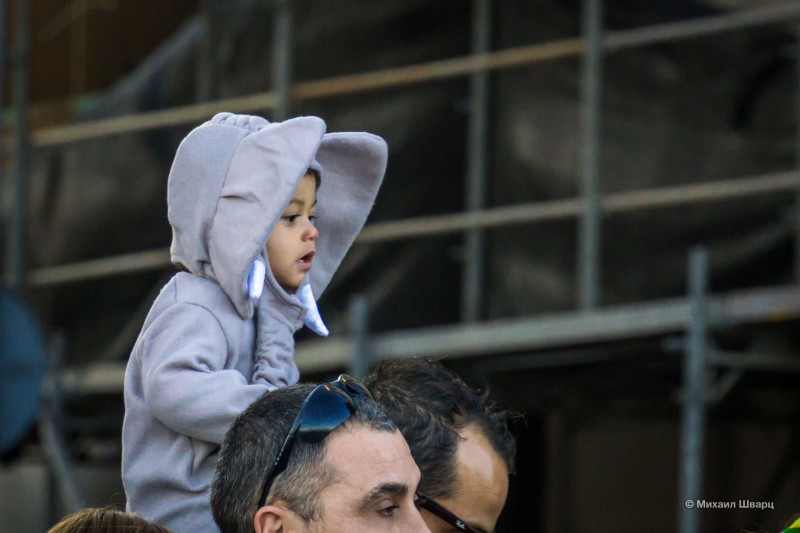
Want a photo for Instagram?
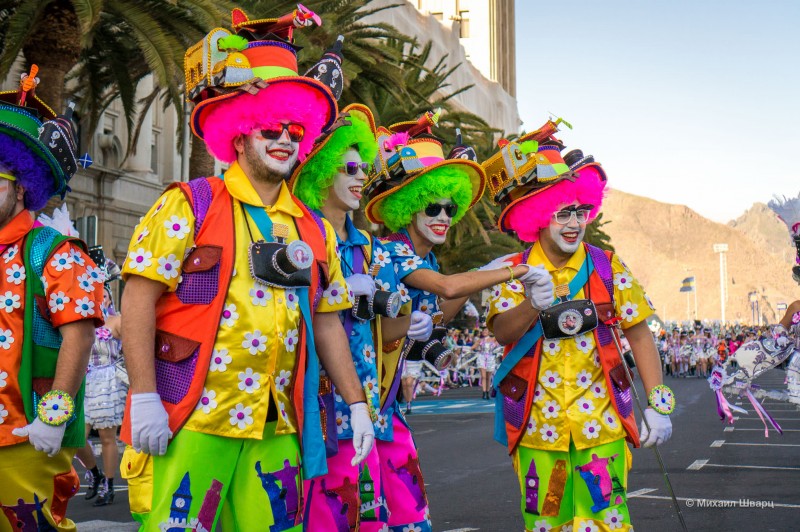
That’s quite a costume too!

And these must be mailmen from all over the city walking. The cutie is with them too.
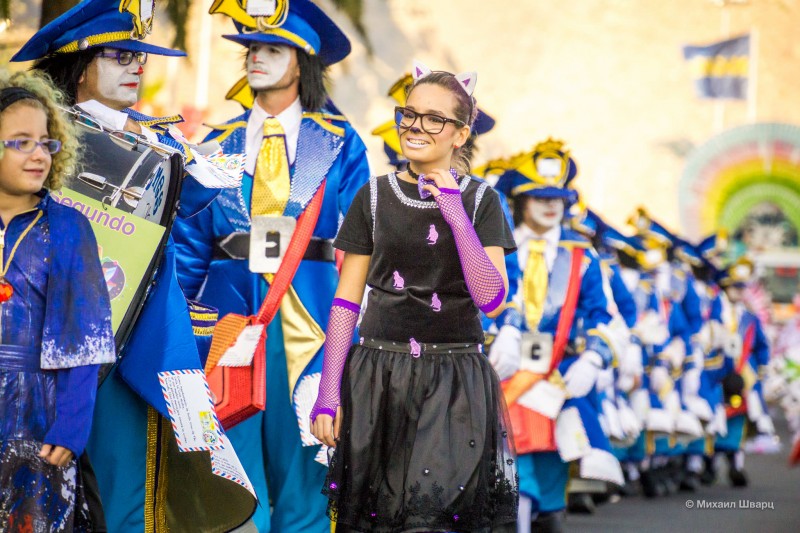
Astronauts and rocket children!
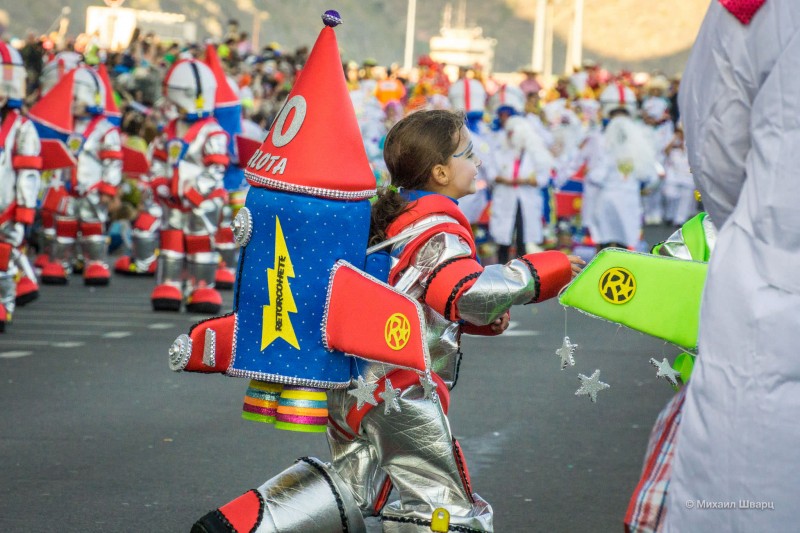
The kitty got bored.

The doctors will save you from all winter ailments and spring vitamin deficiency.
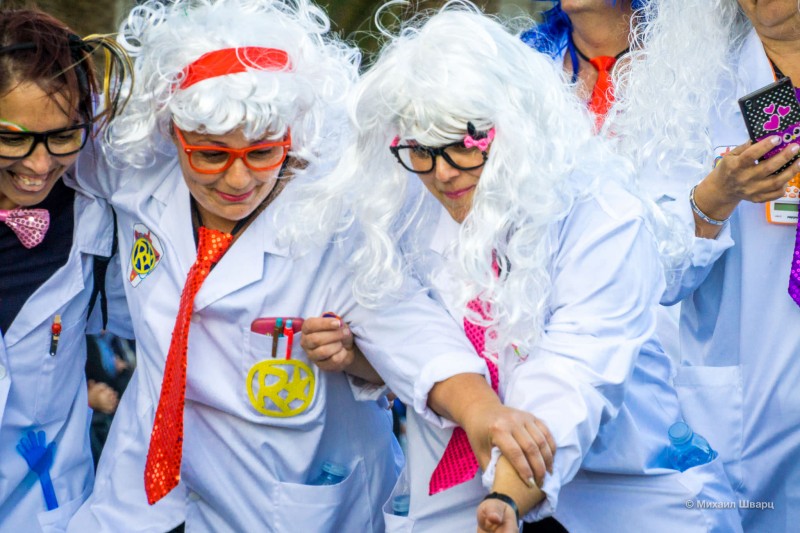
What do you think of Chewbacca with the boy? They didn’t forget about Star Wars either. A whole delegation passed by.

Night was falling. The streets turned into complete chaos and fun. And we, like diligent retirees, are going to prepare for bed.
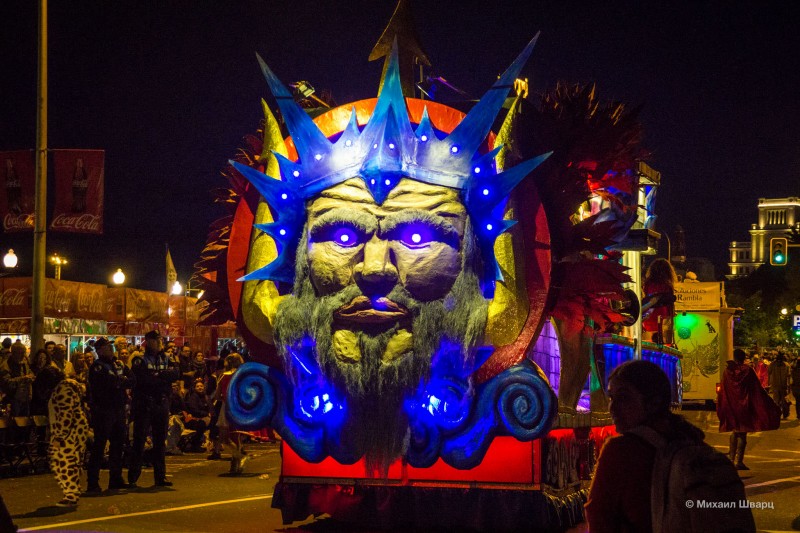
A whole field of buses took the merry participants and spectators of the carnival home all evening.
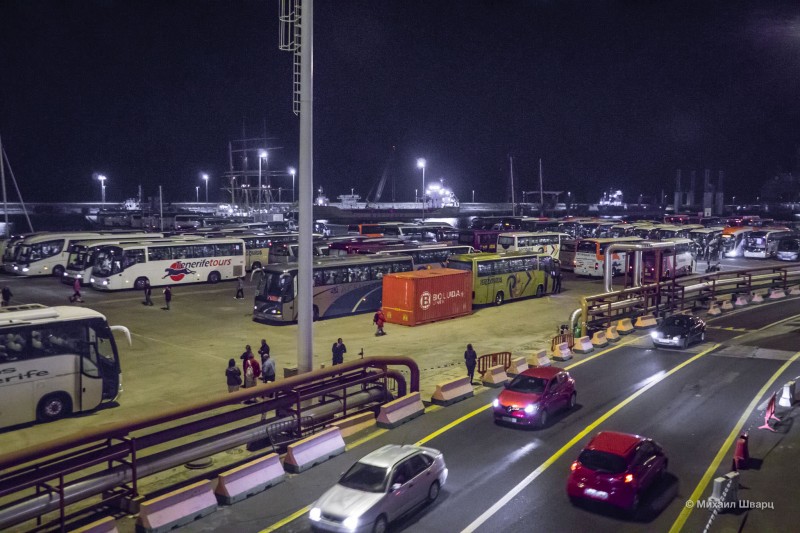
How does the carnival end?
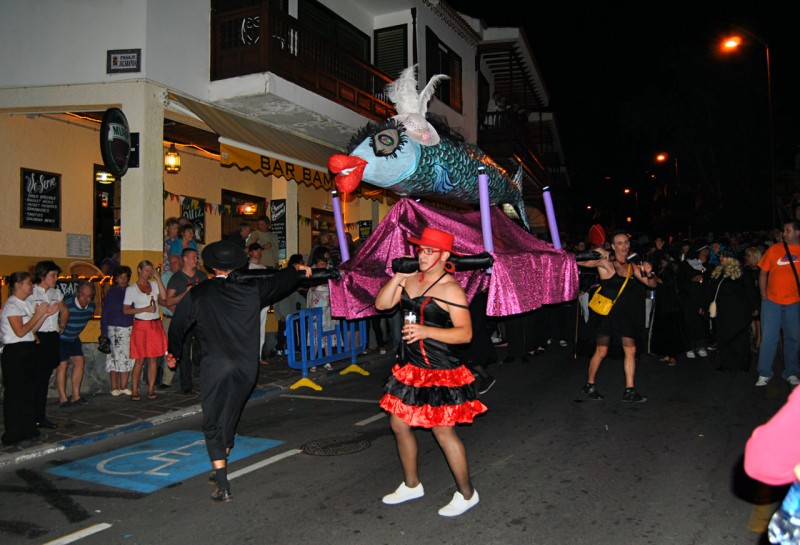
The next day, the last carnival event takes place – Entierro de la Sardina (Burial of the Sardine). Just like in our Maslenitsa, participants burn a symbol of the departing holiday on the square – a huge cardboard fish. The Sardine is accompanied by a sad procession in masks – it can be sad to part with the carnival. Spectators cry, filling the streets with theatrical moans. The ashes left from the burned effigy are buried on the beach. However, there’s no time to be sad. From the next day, preparations for the new holiday begin!
When is Carnival held?
Carnival takes place in early February.
Preparations for the new festival begin immediately after the closing of the previous carnival. The timing of the celebrations varies each year. The start of festivities is determined by the date of Catholic Easter: the carnival must end before Lent begins. The program lasts for a whole month, but the main events occur during the last week, known as Shrovetide. Usually the festival takes place in February, sometimes in March.
You can check the dates and view the detailed program for the next Carnival here.
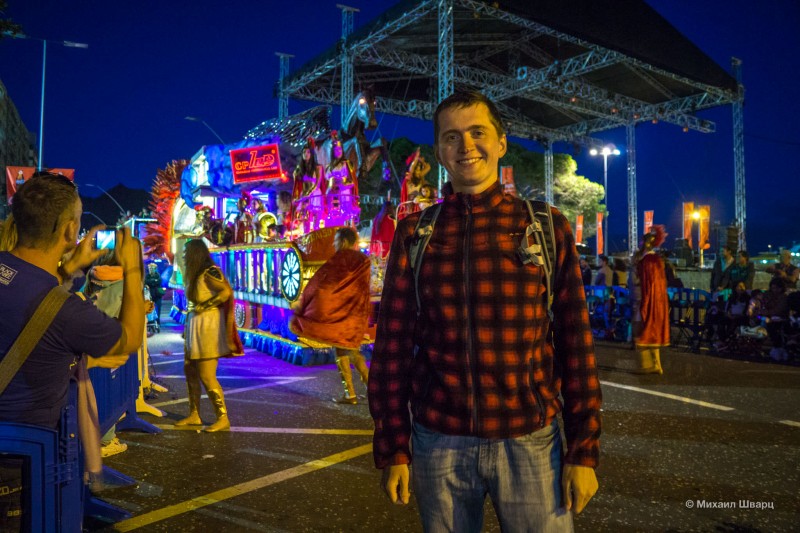
It was fun, but fairly modest for a carnival.
This was Misha reporting. I was there myself, drank honey and beer, it flowed down my mustache but didn’t reach my mouth, yet my soul felt drunk and satisfied.

Check out my report from the Moors and Christians festival:
- Карнавал на Тенерифе
- GPS: 28,465080 -16,247193

